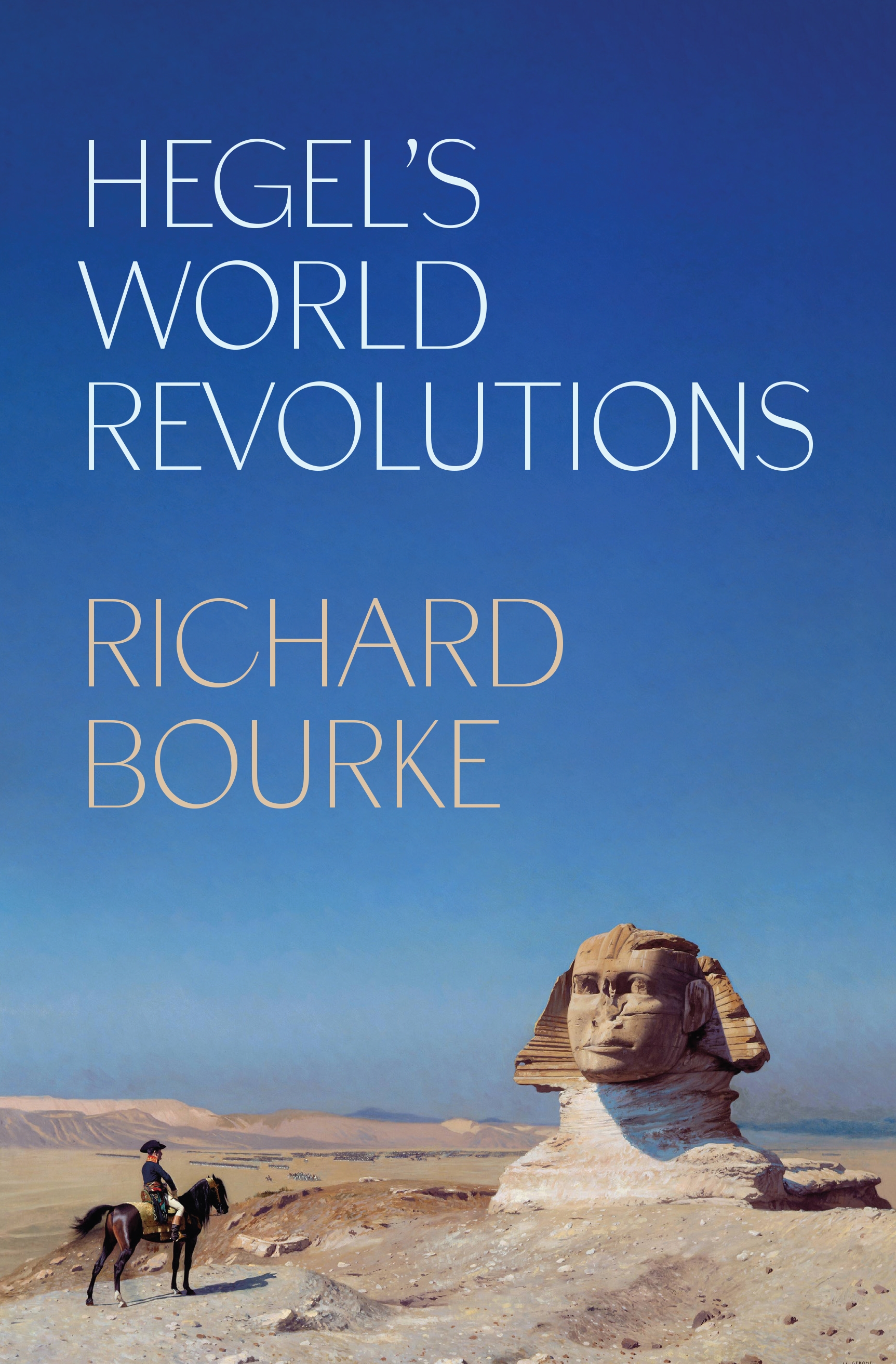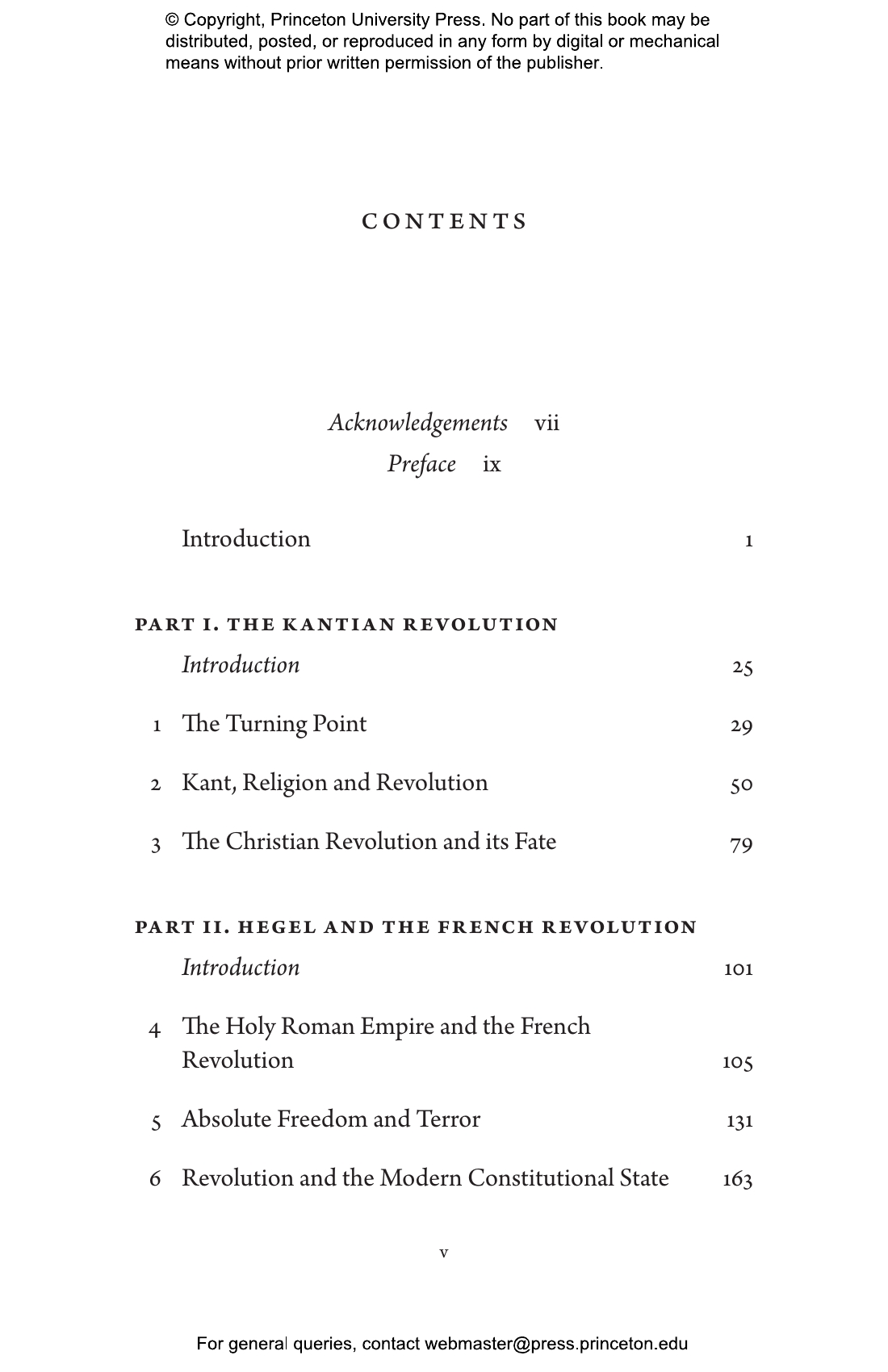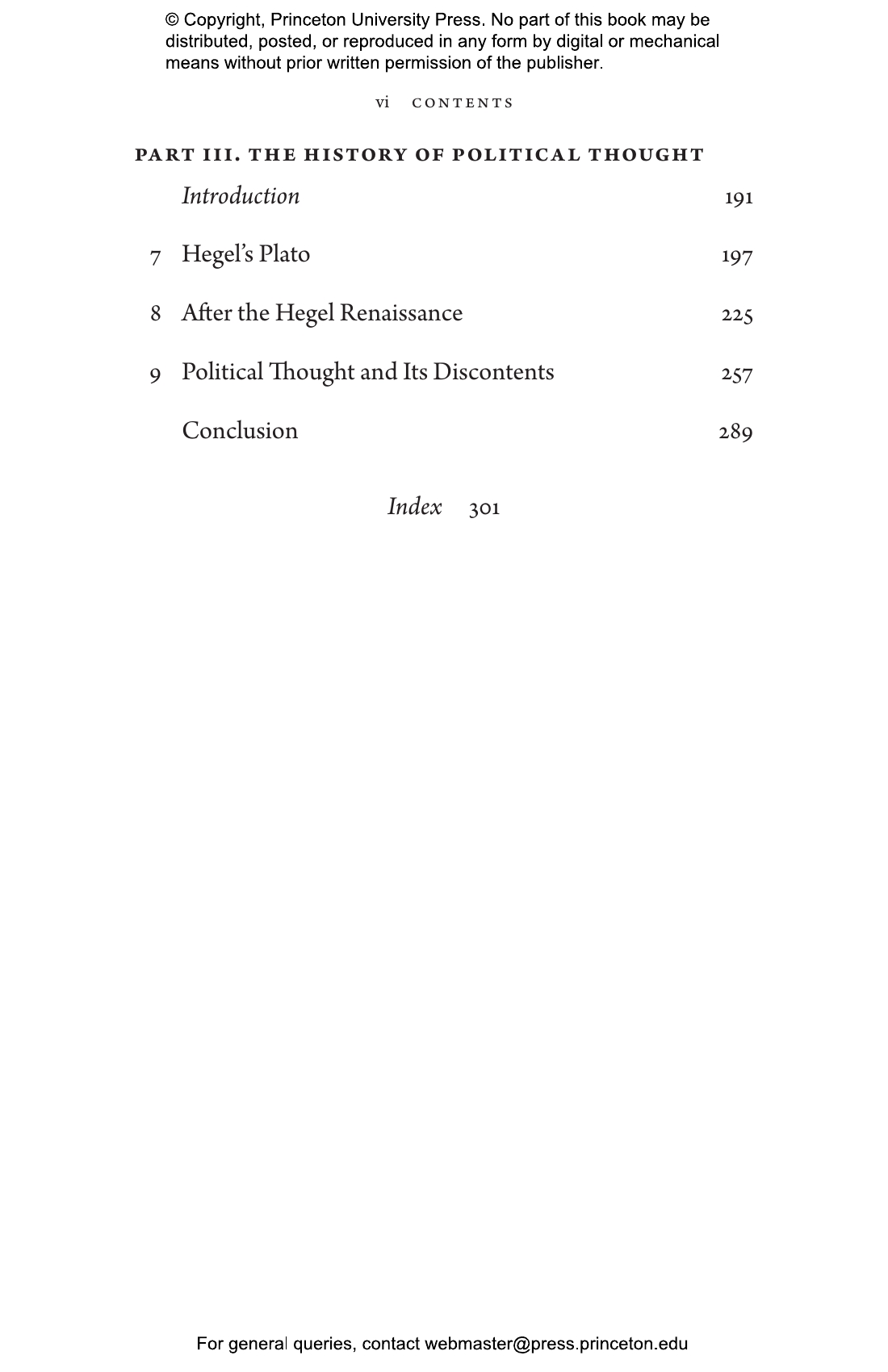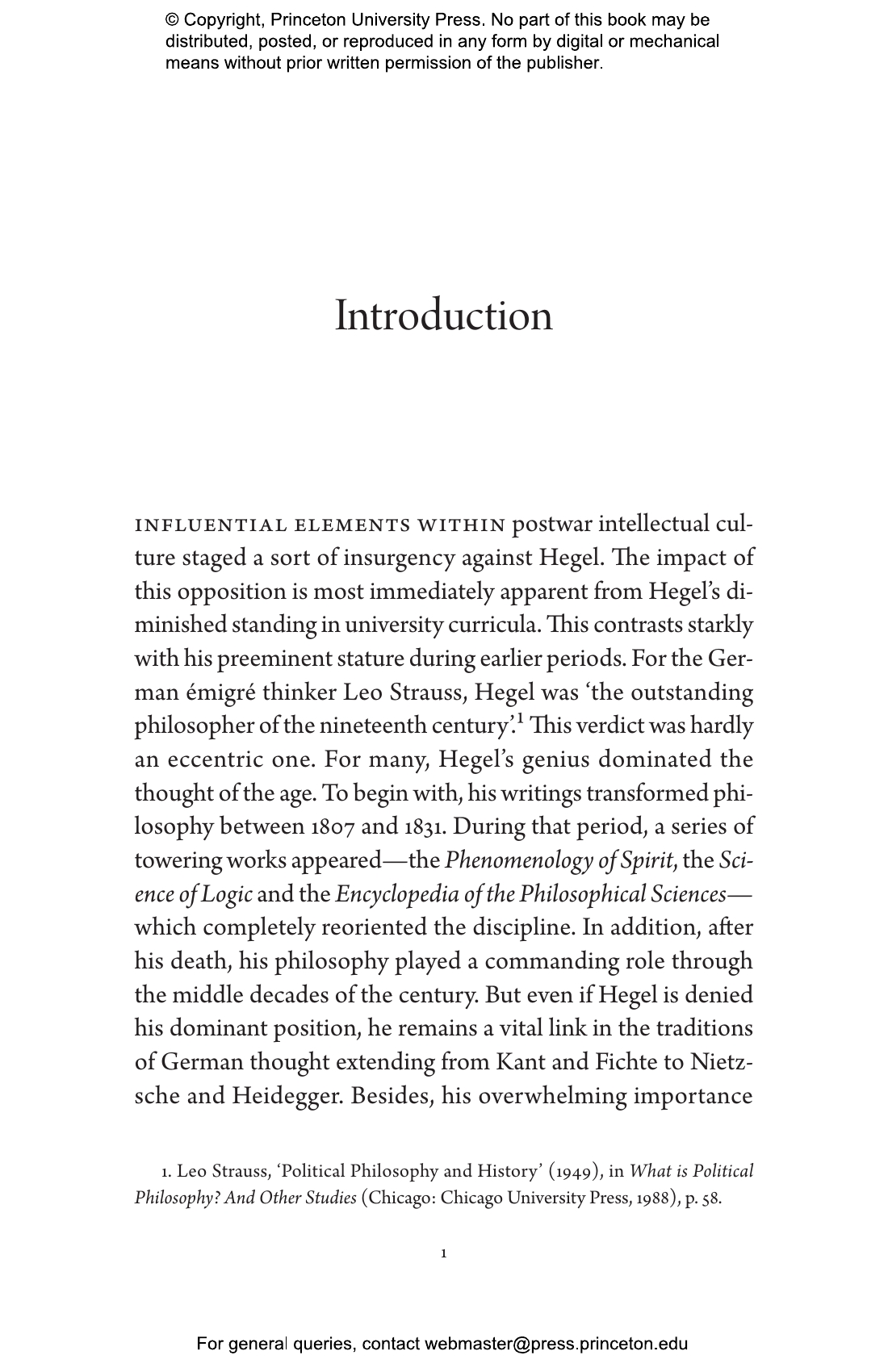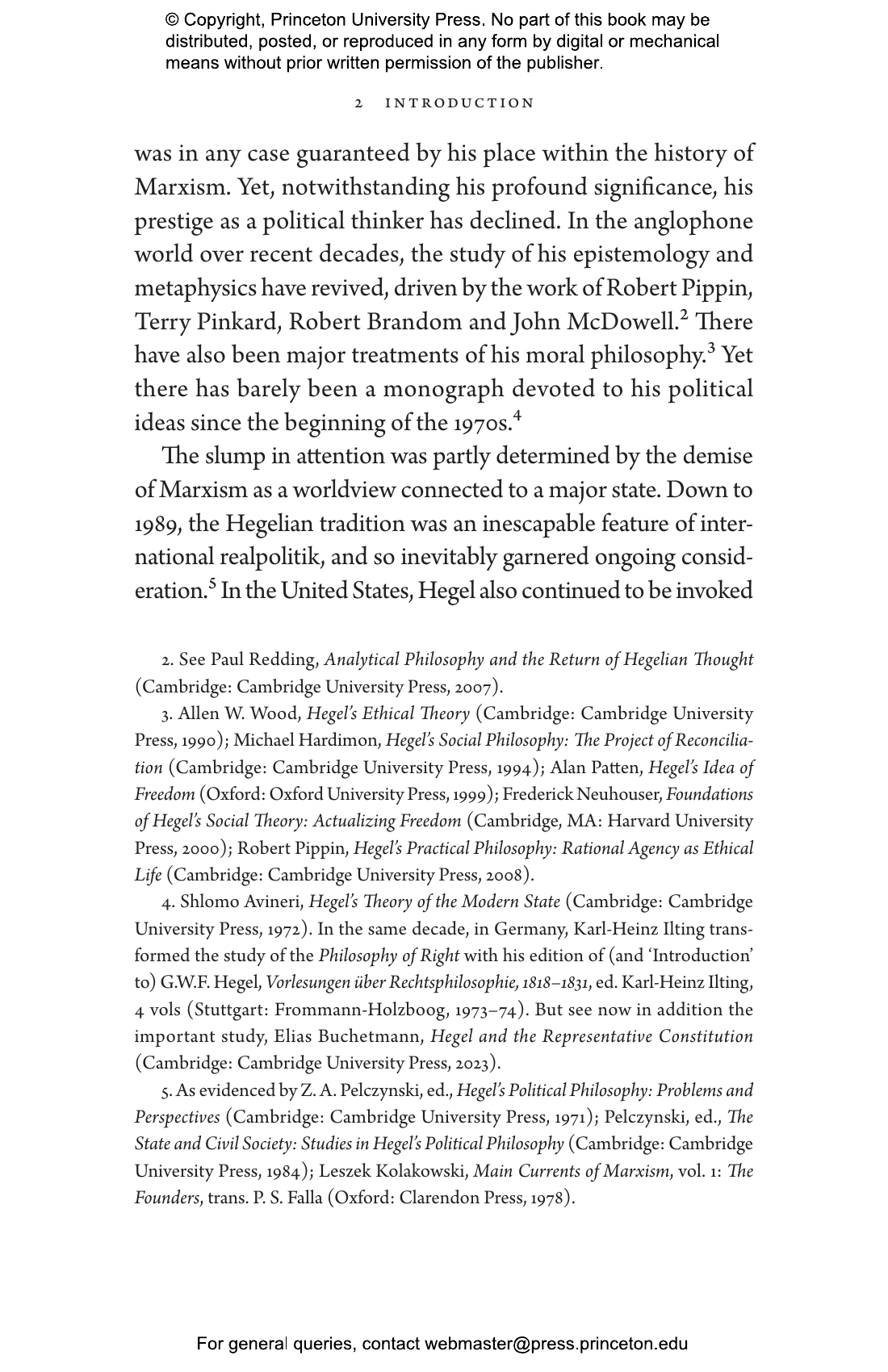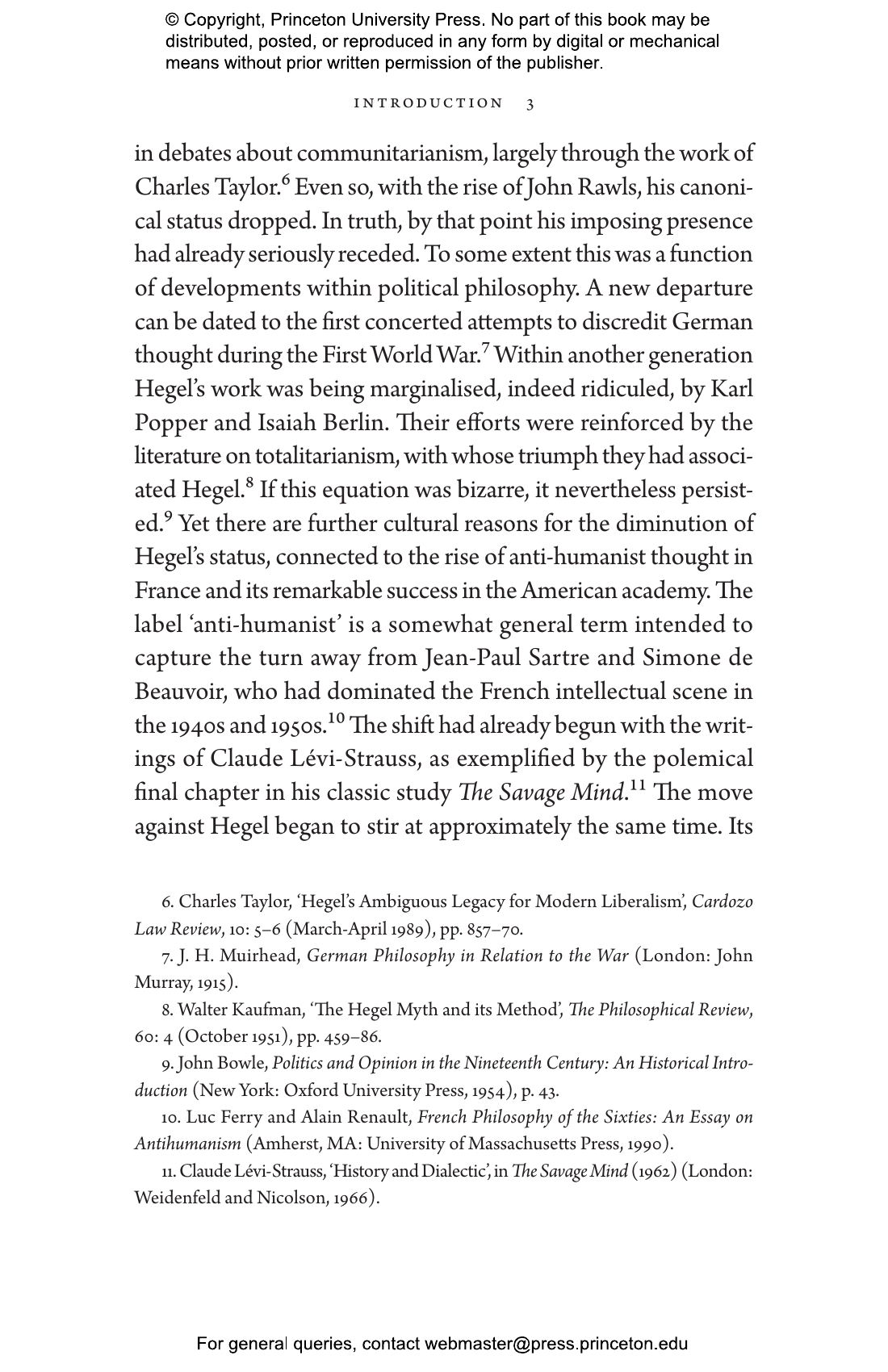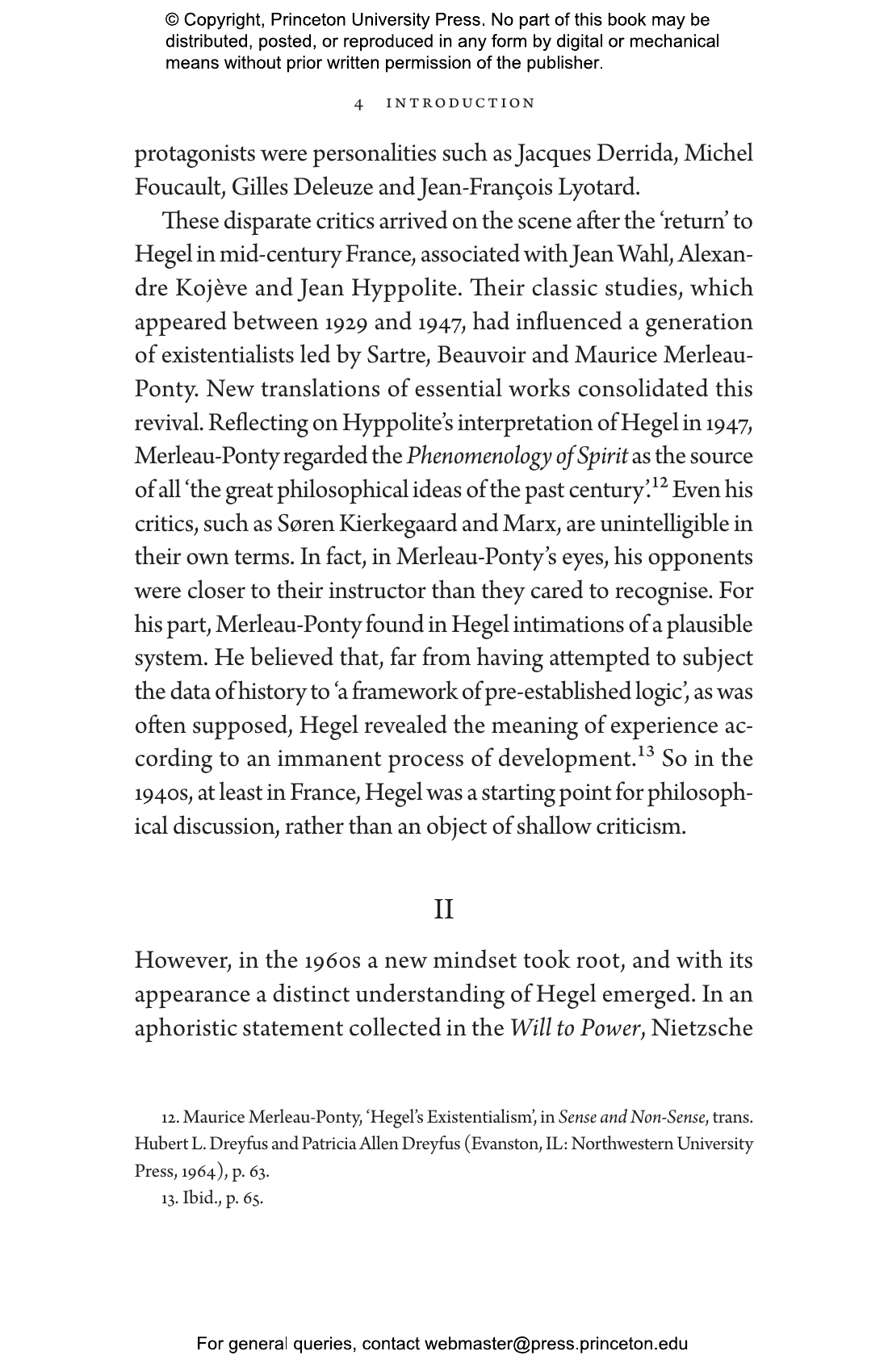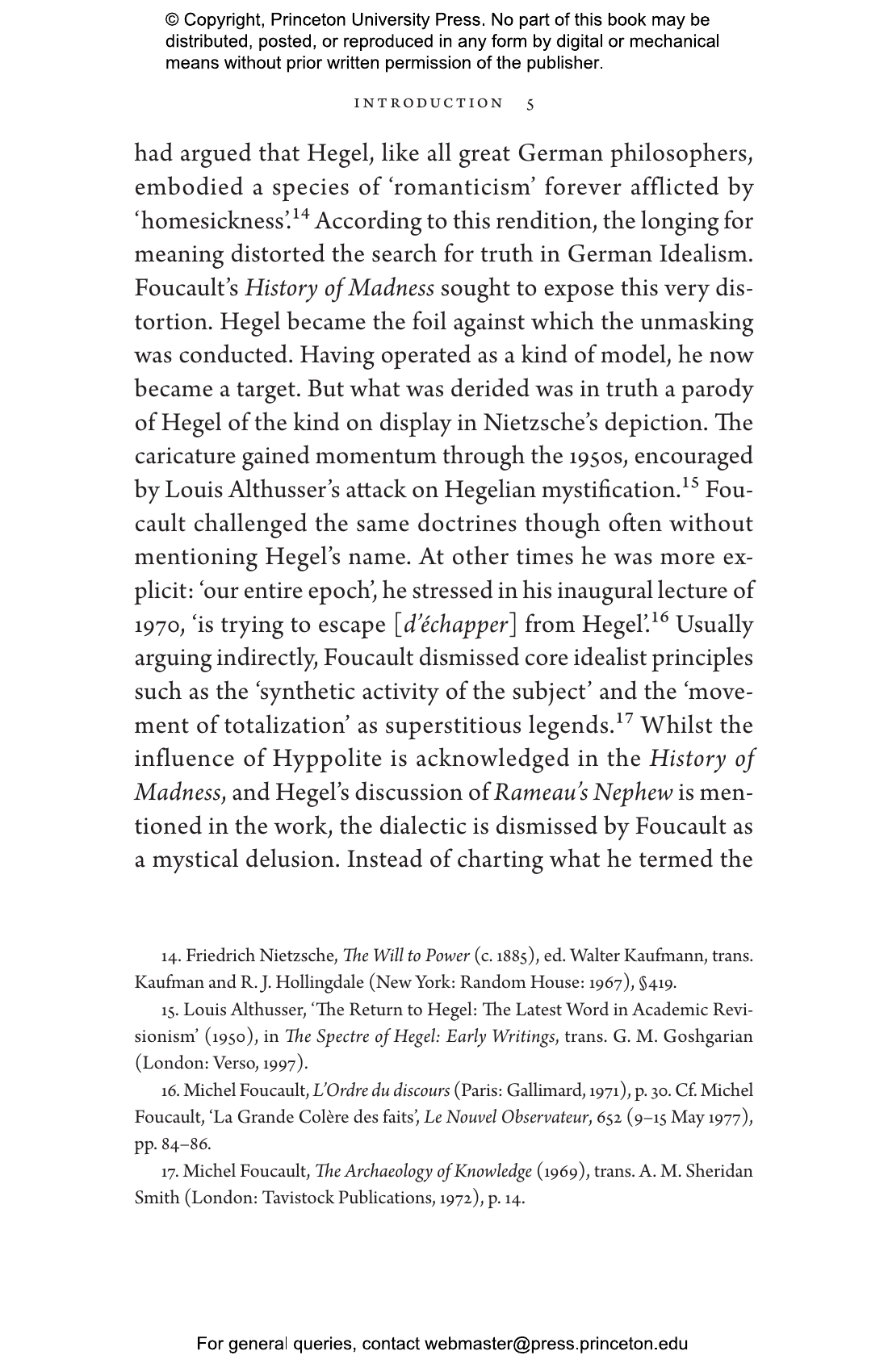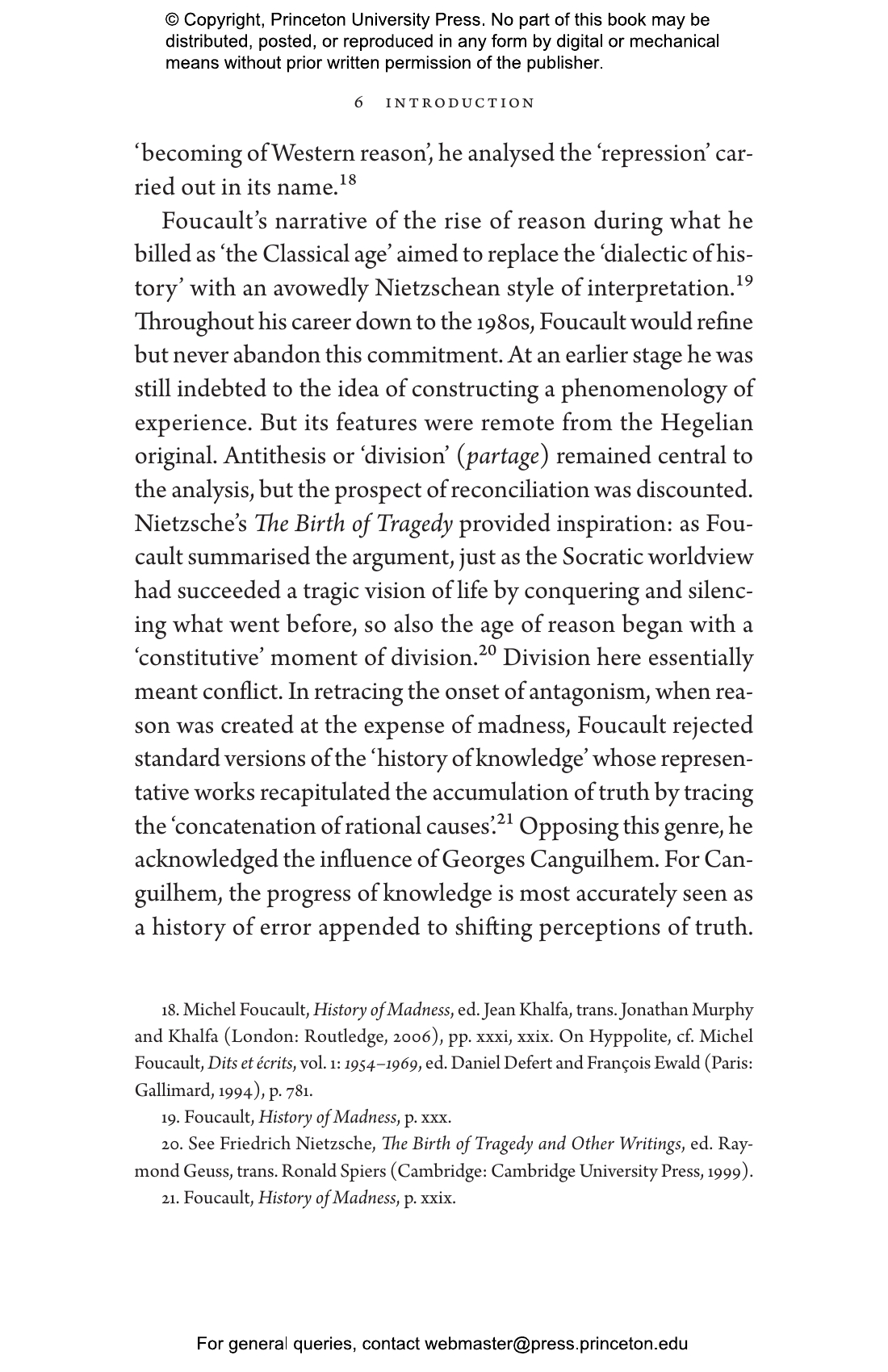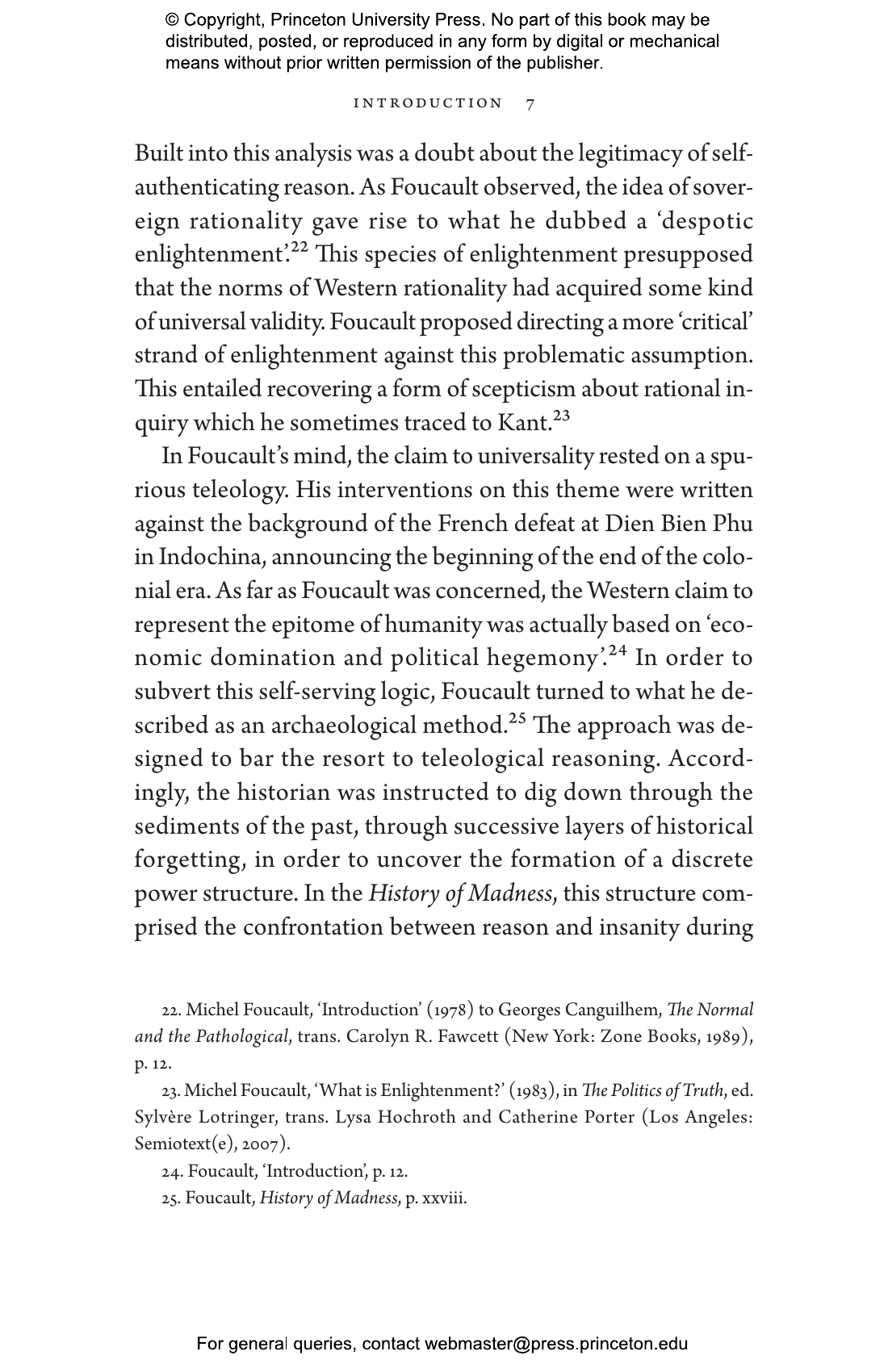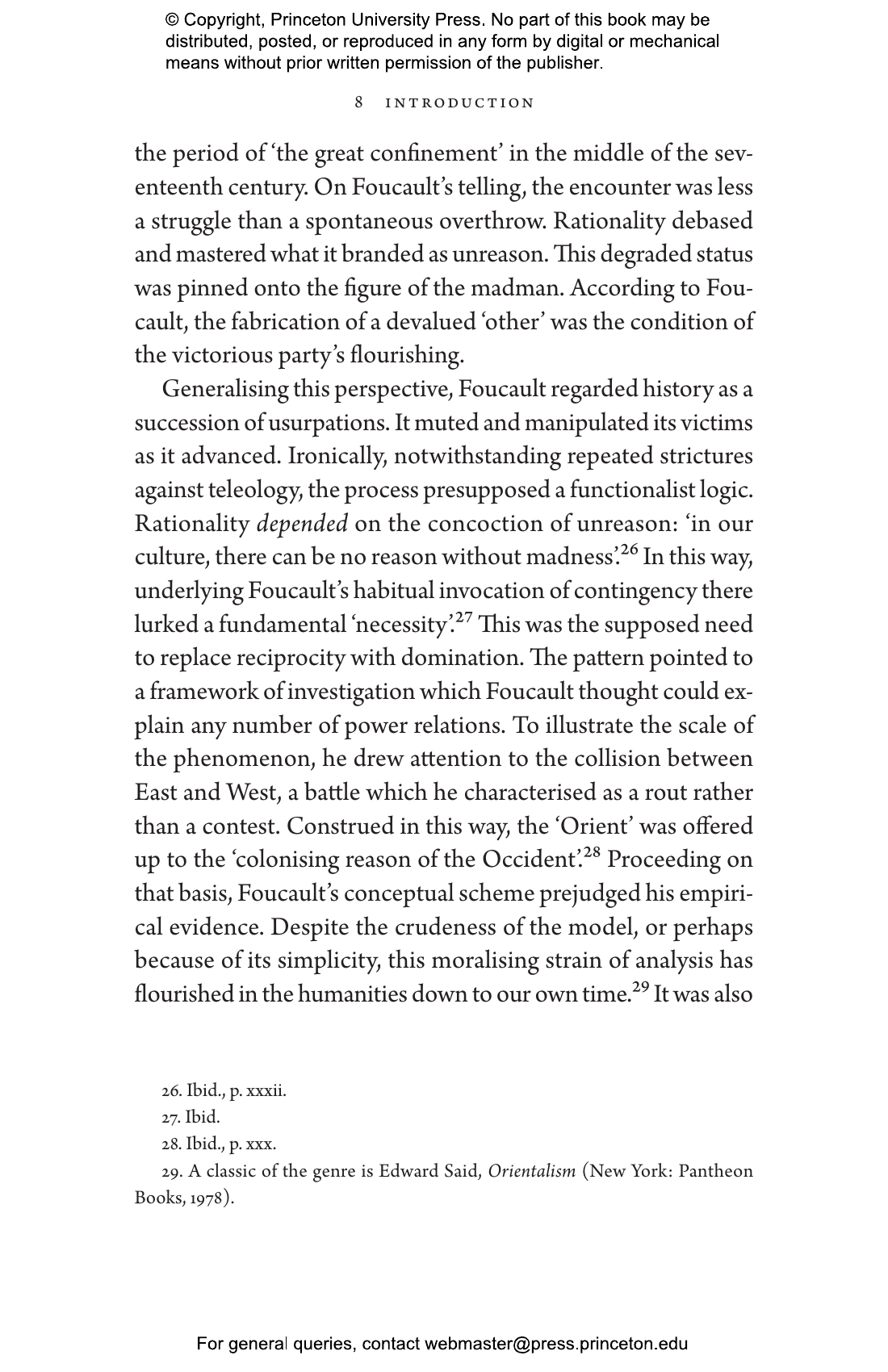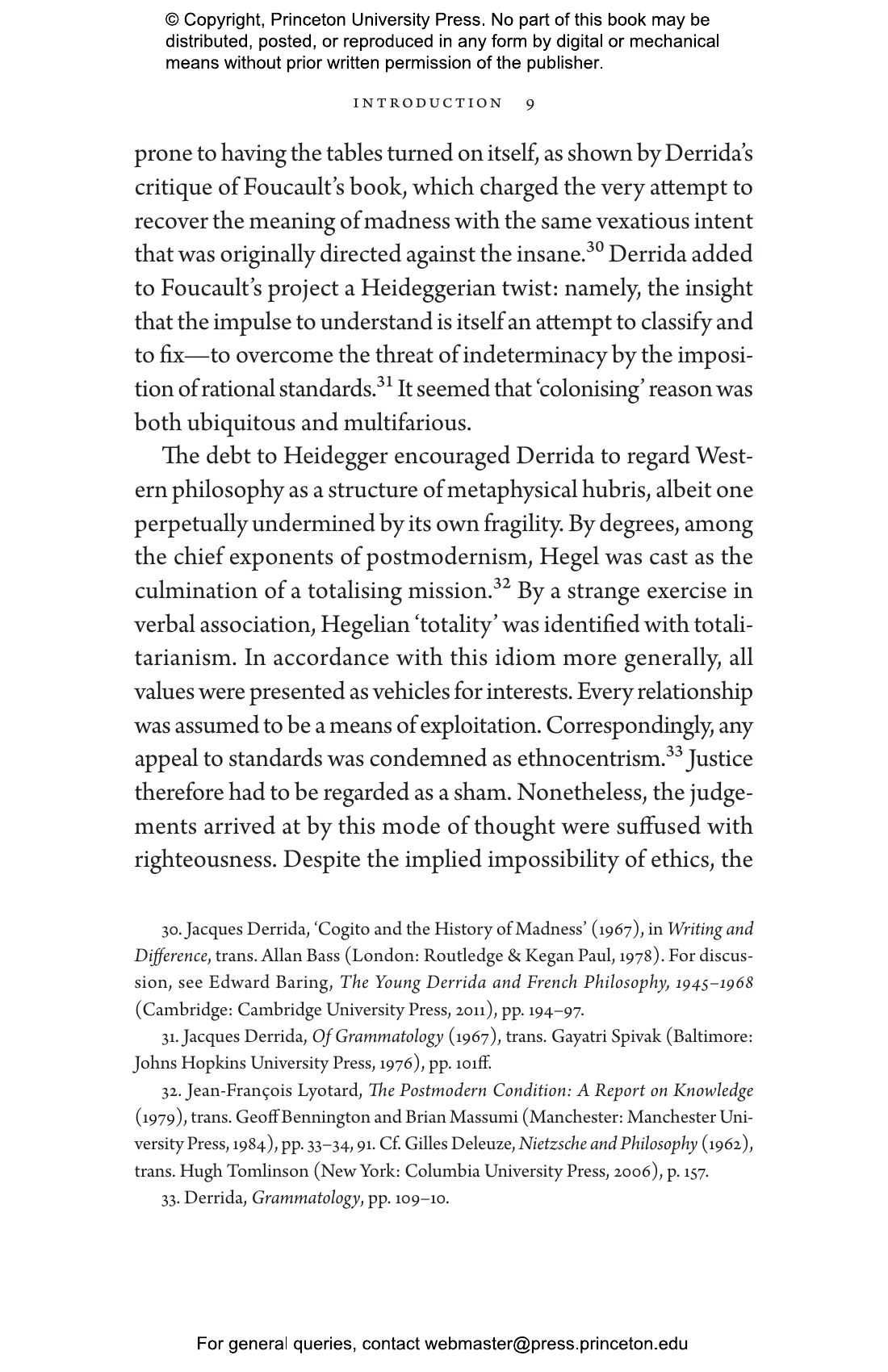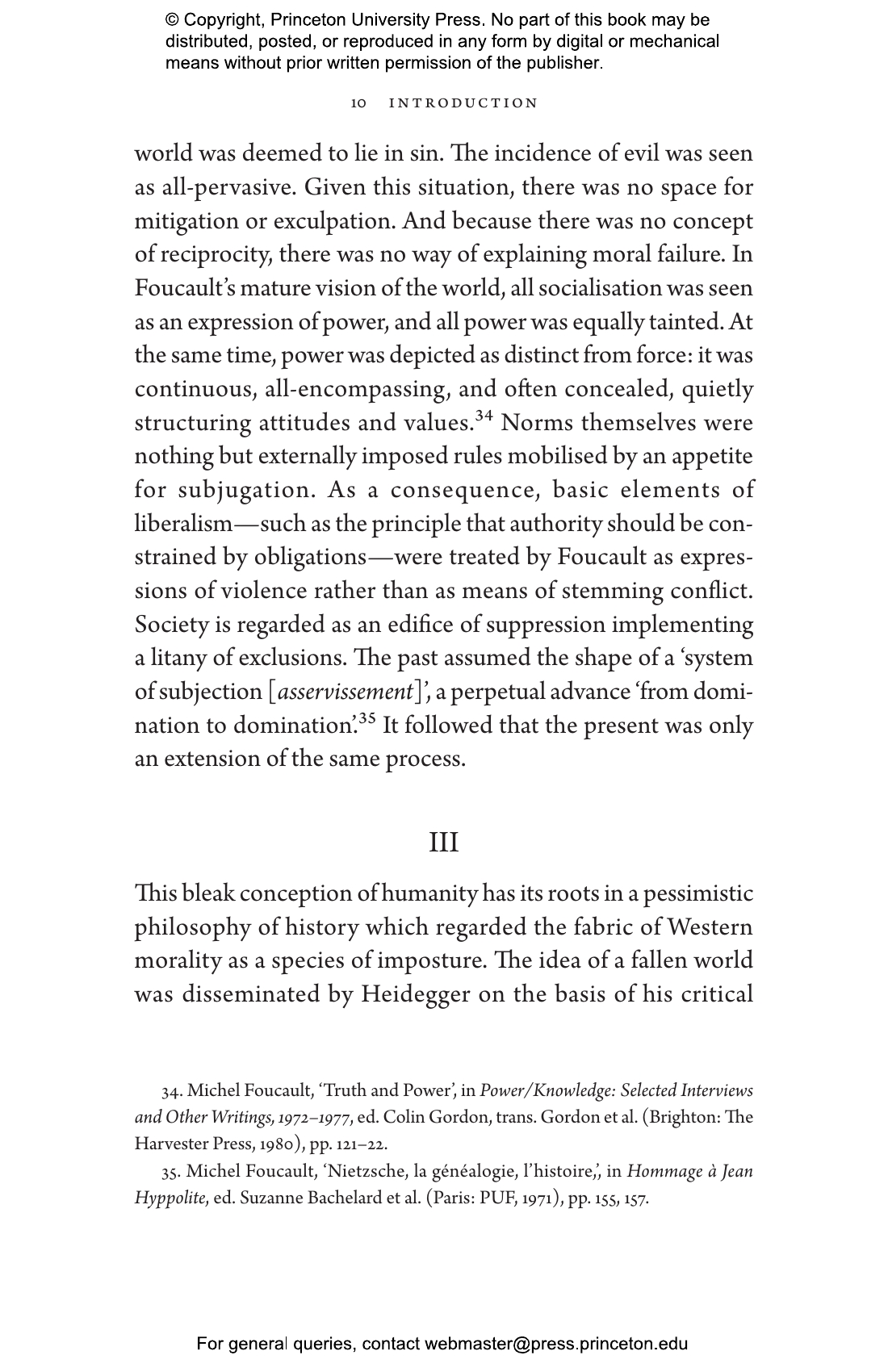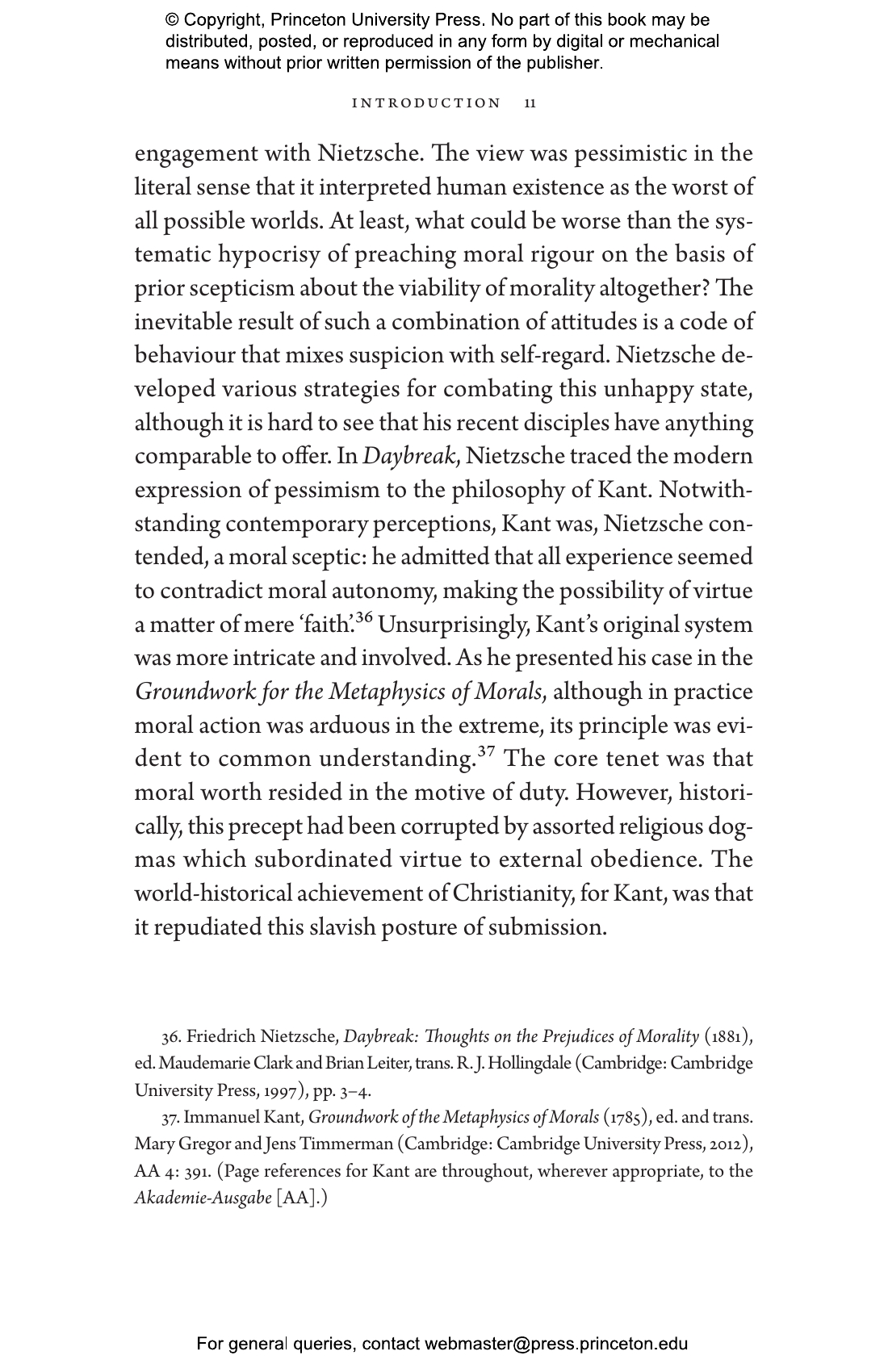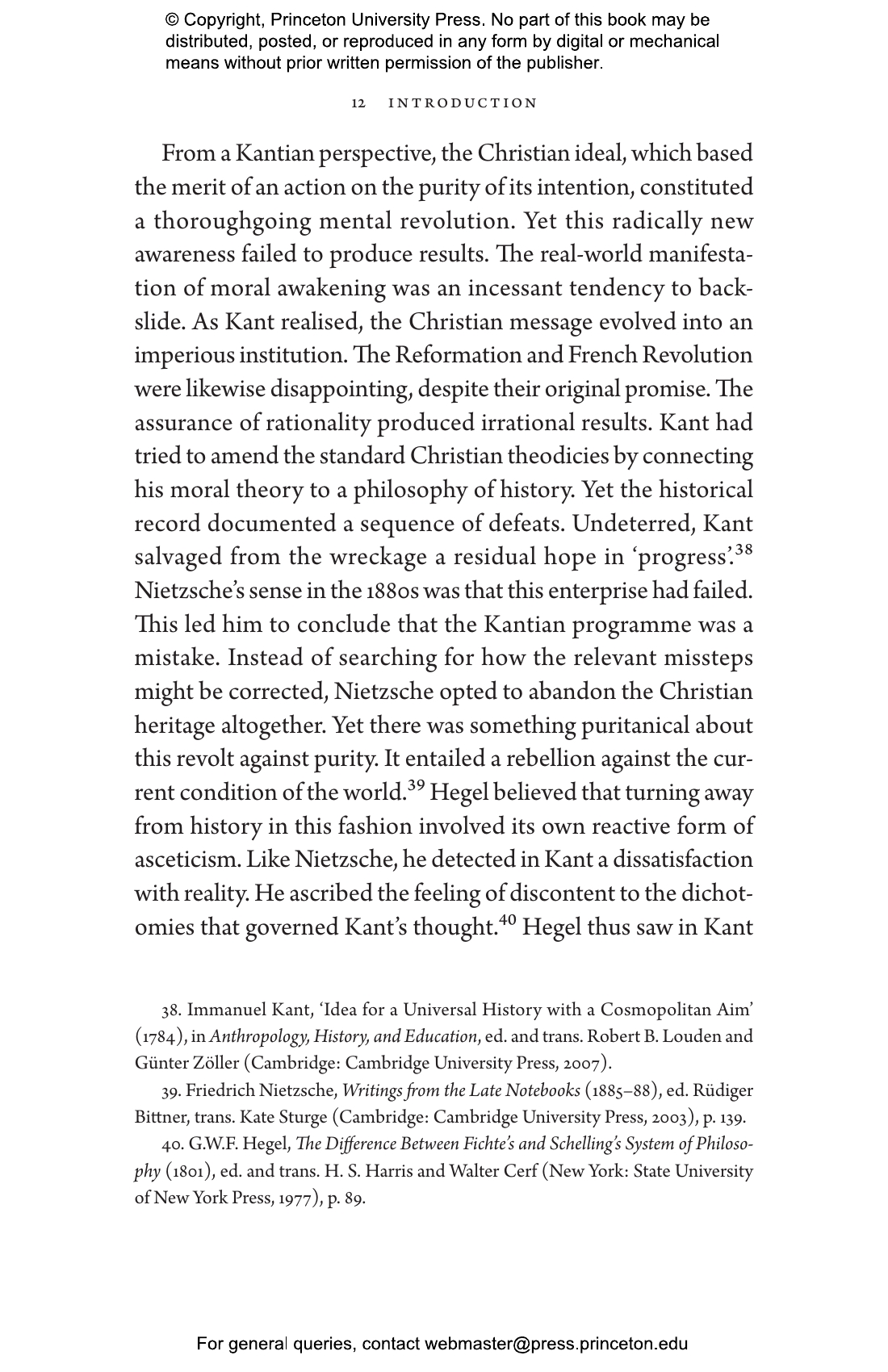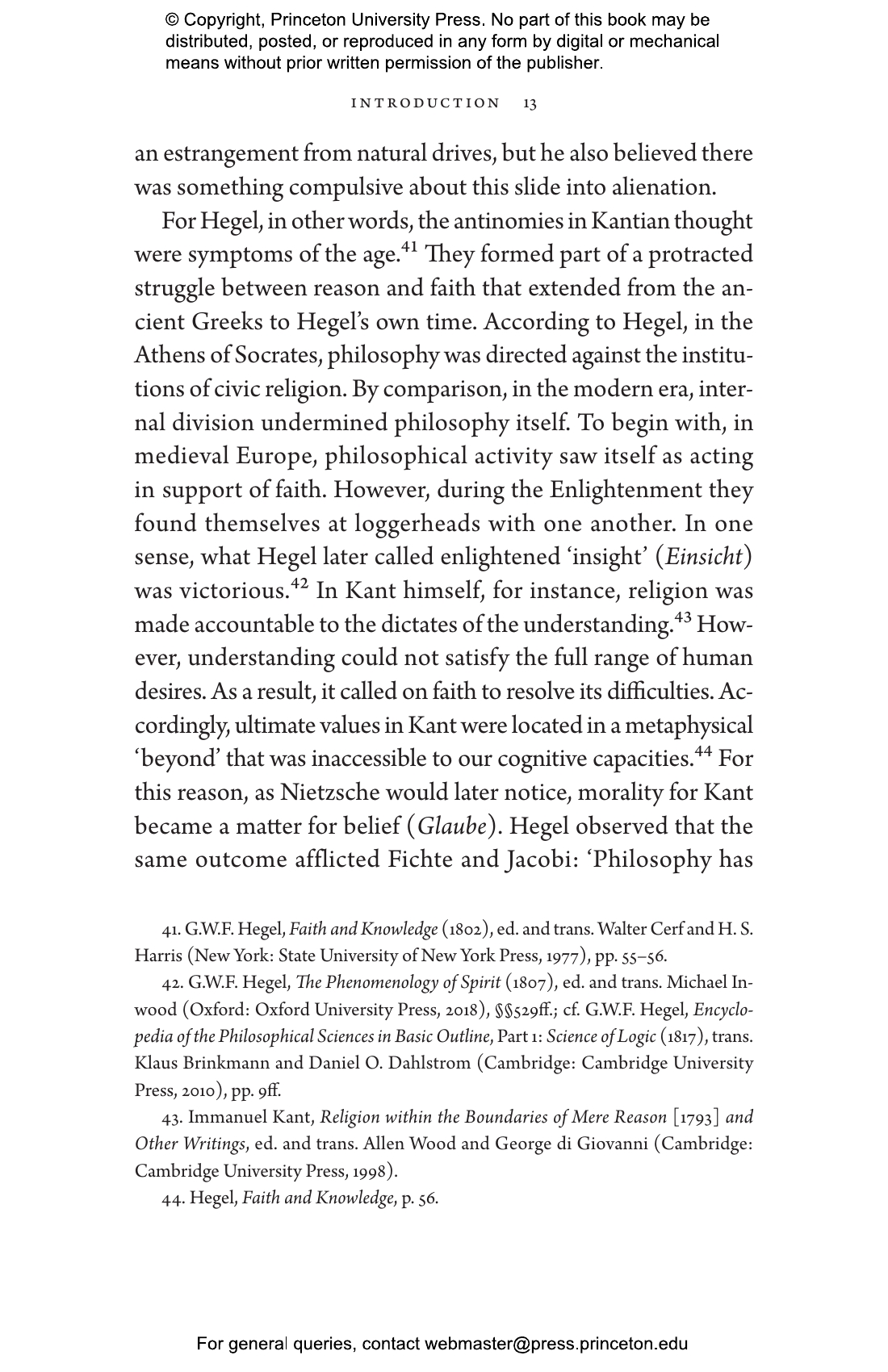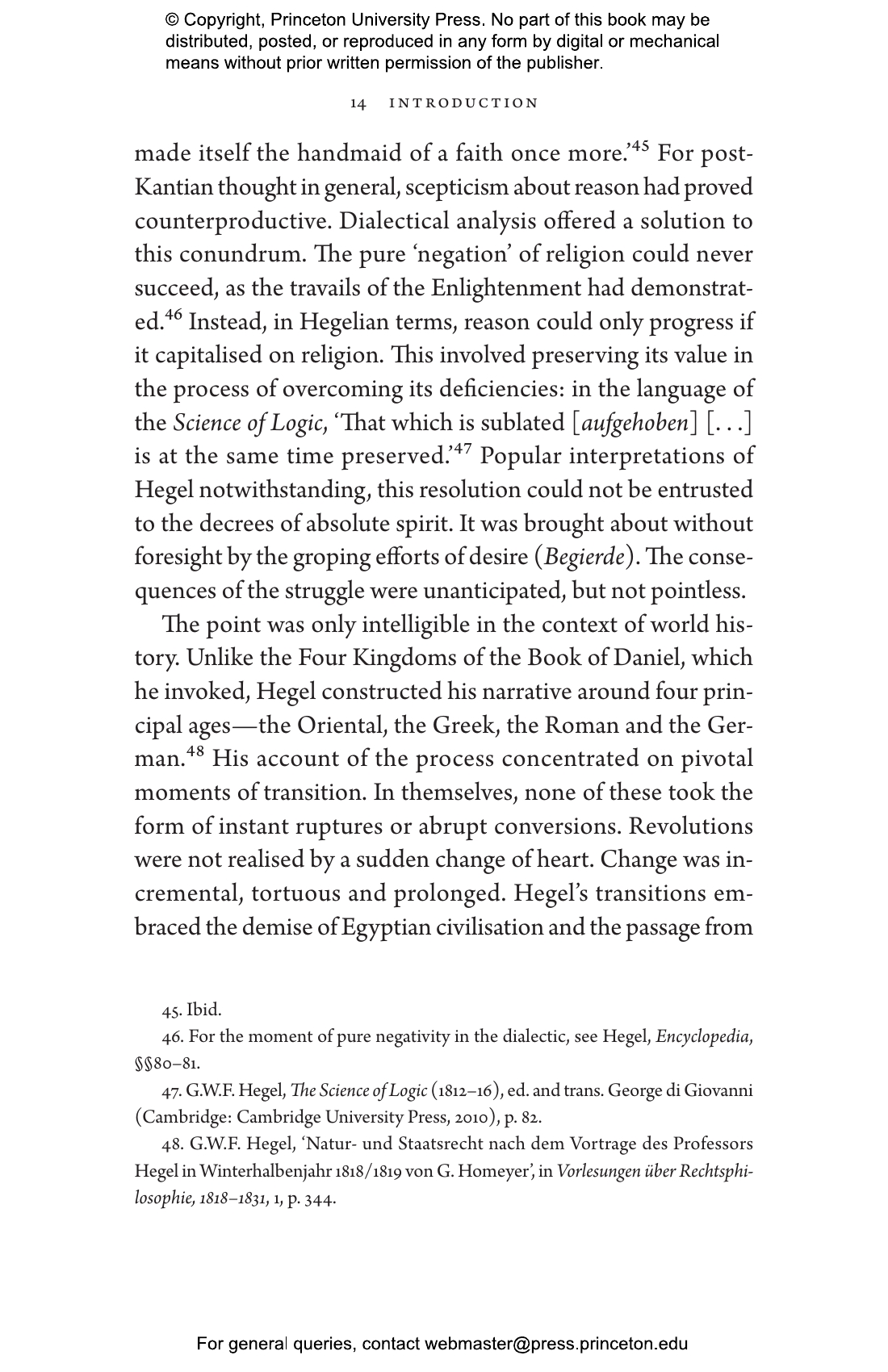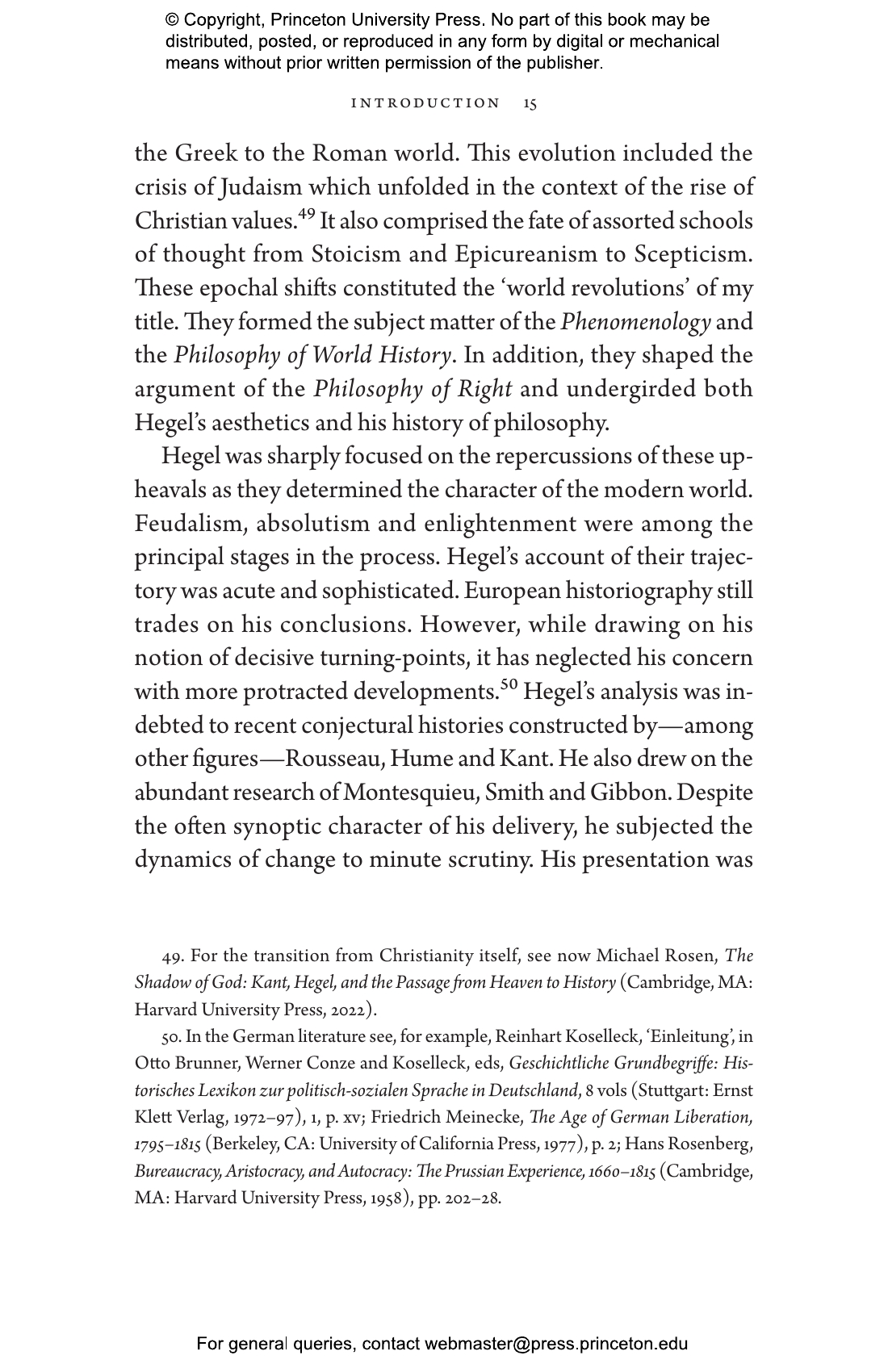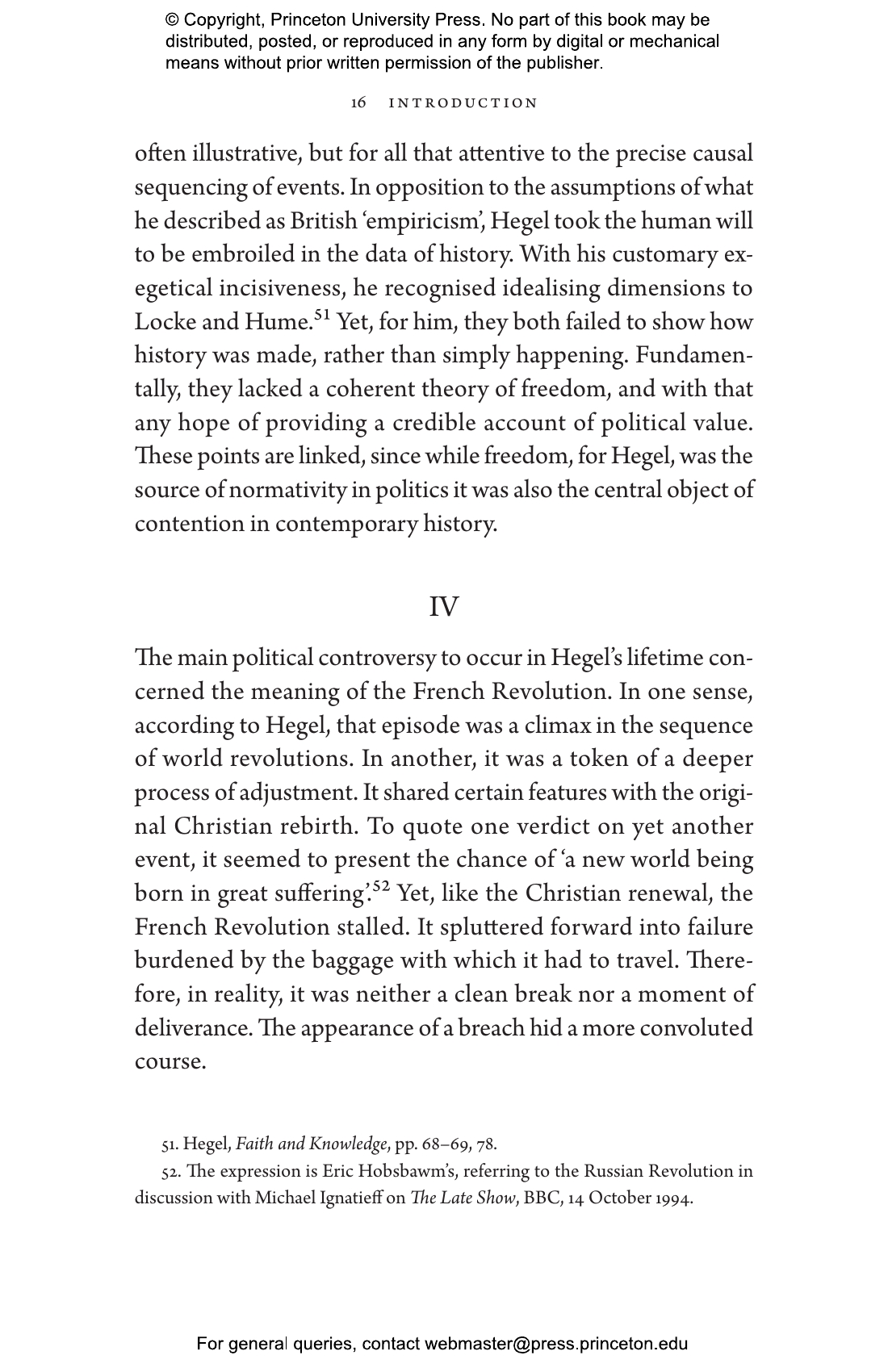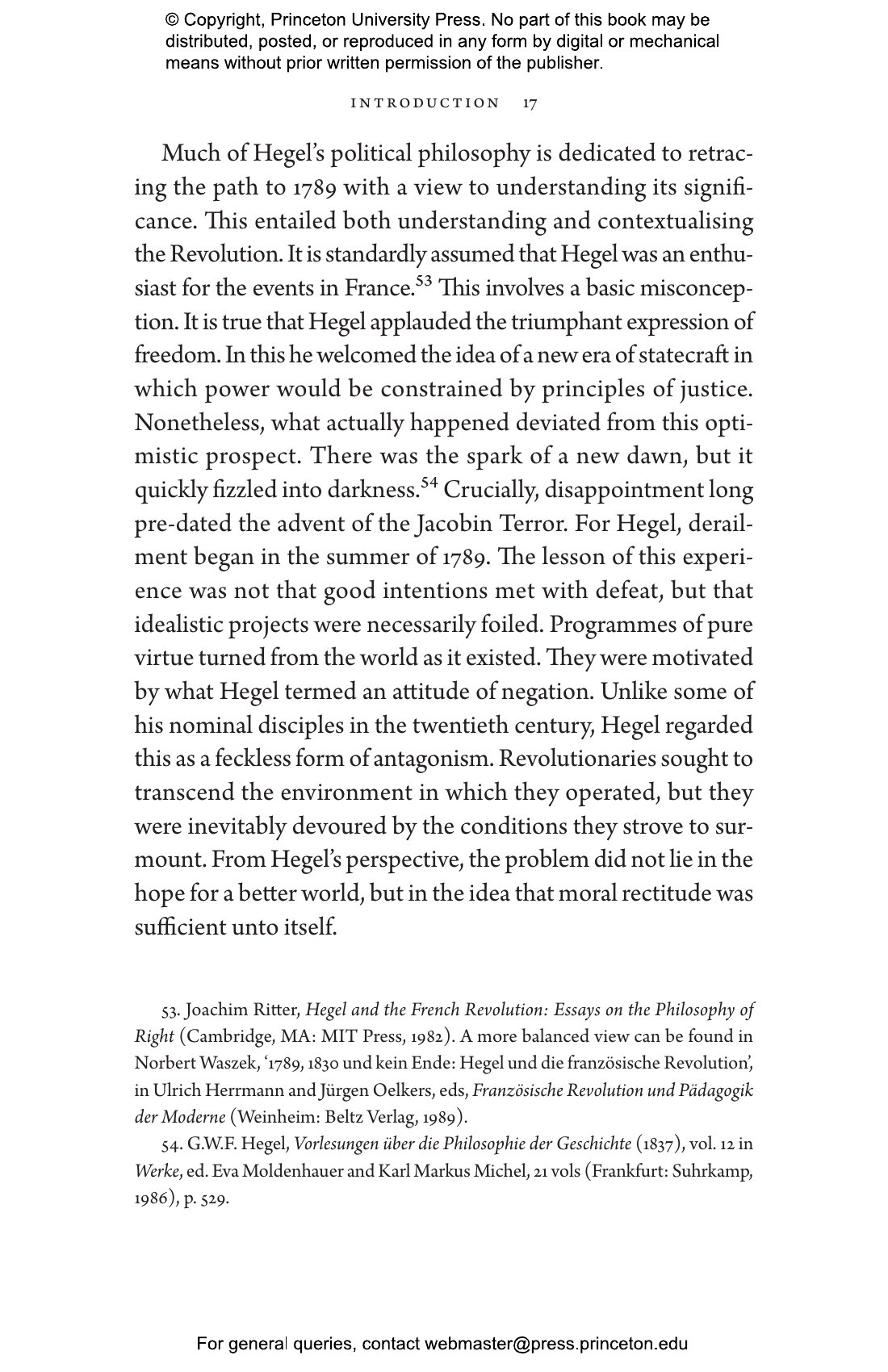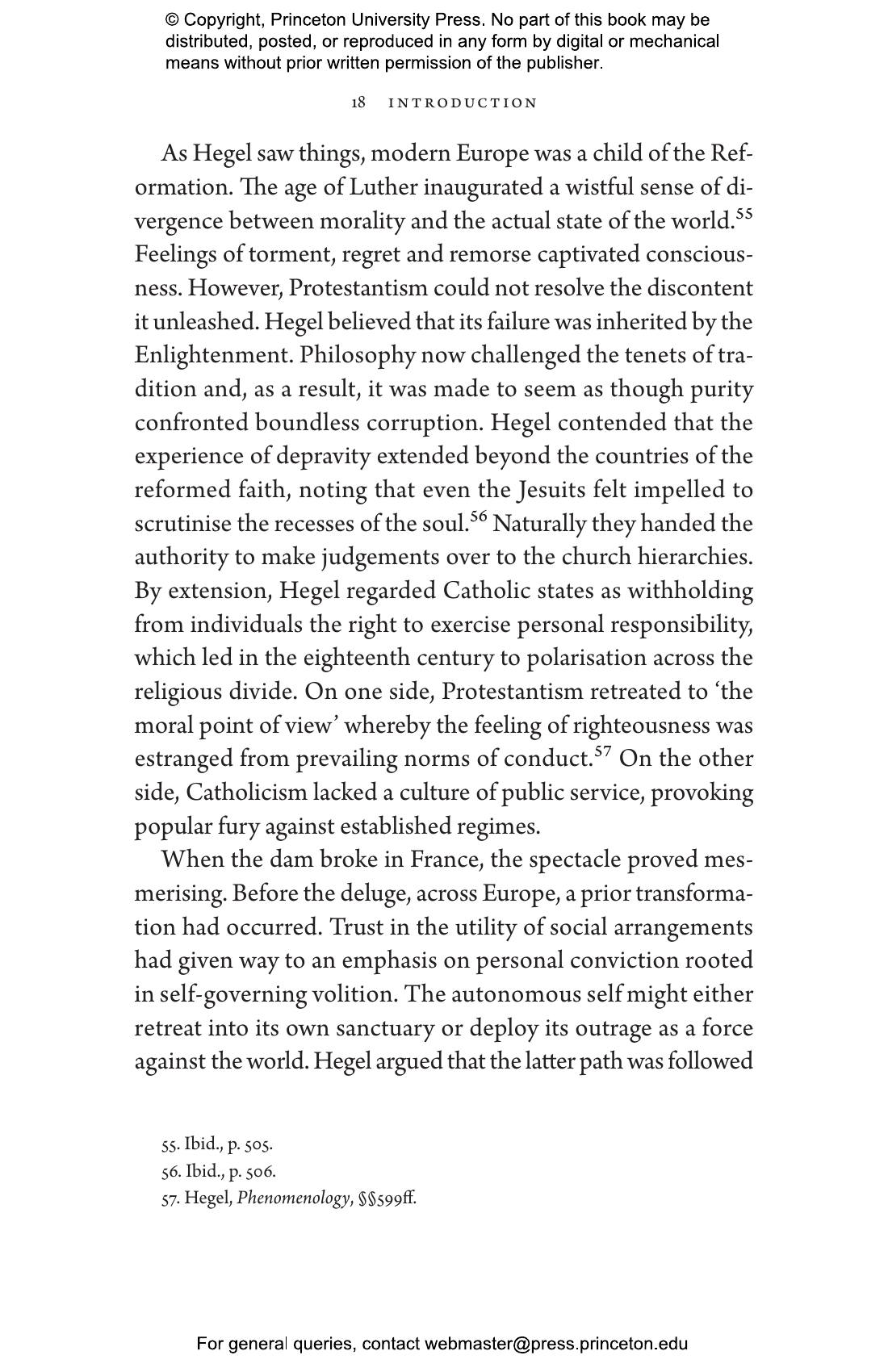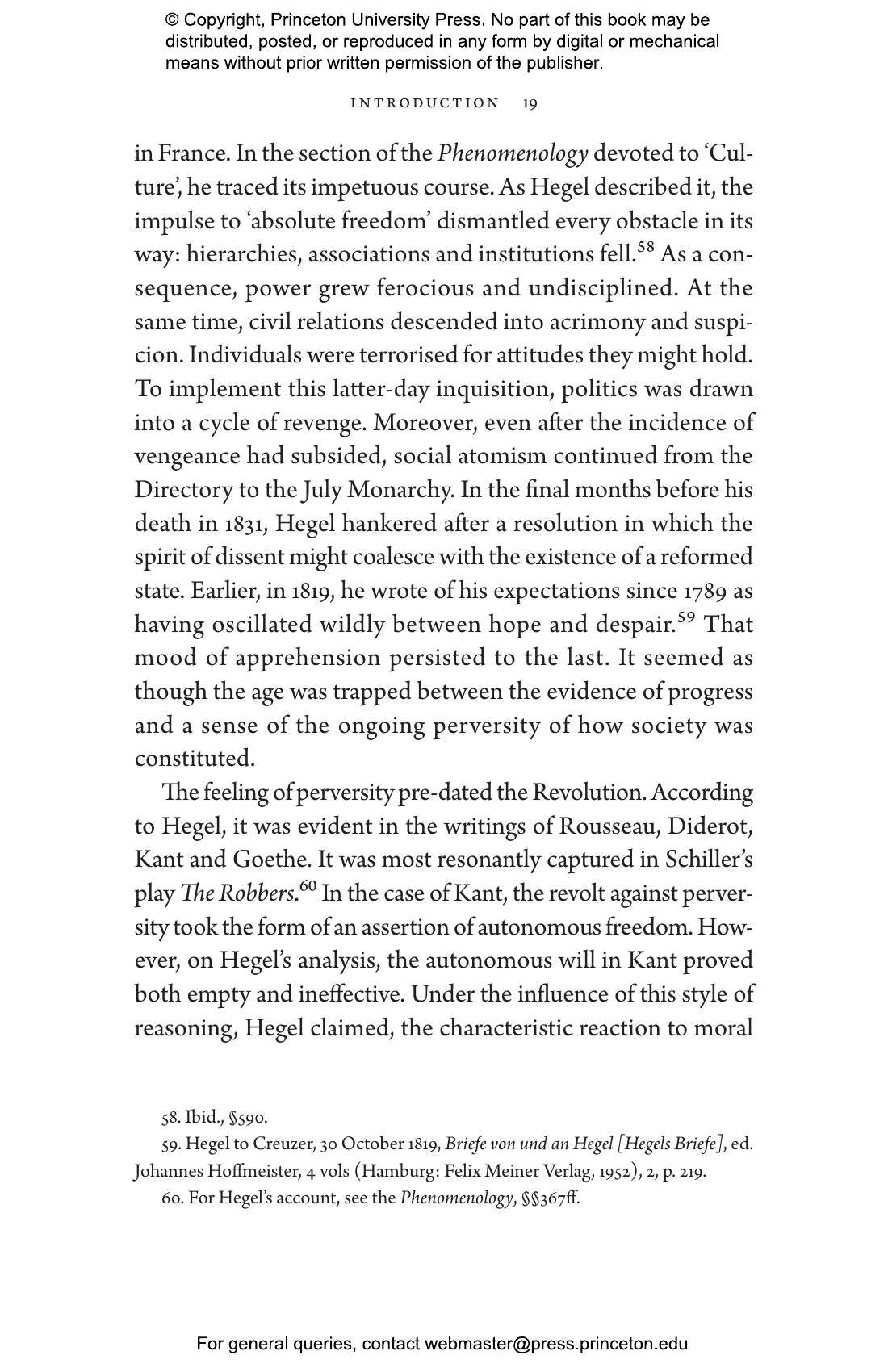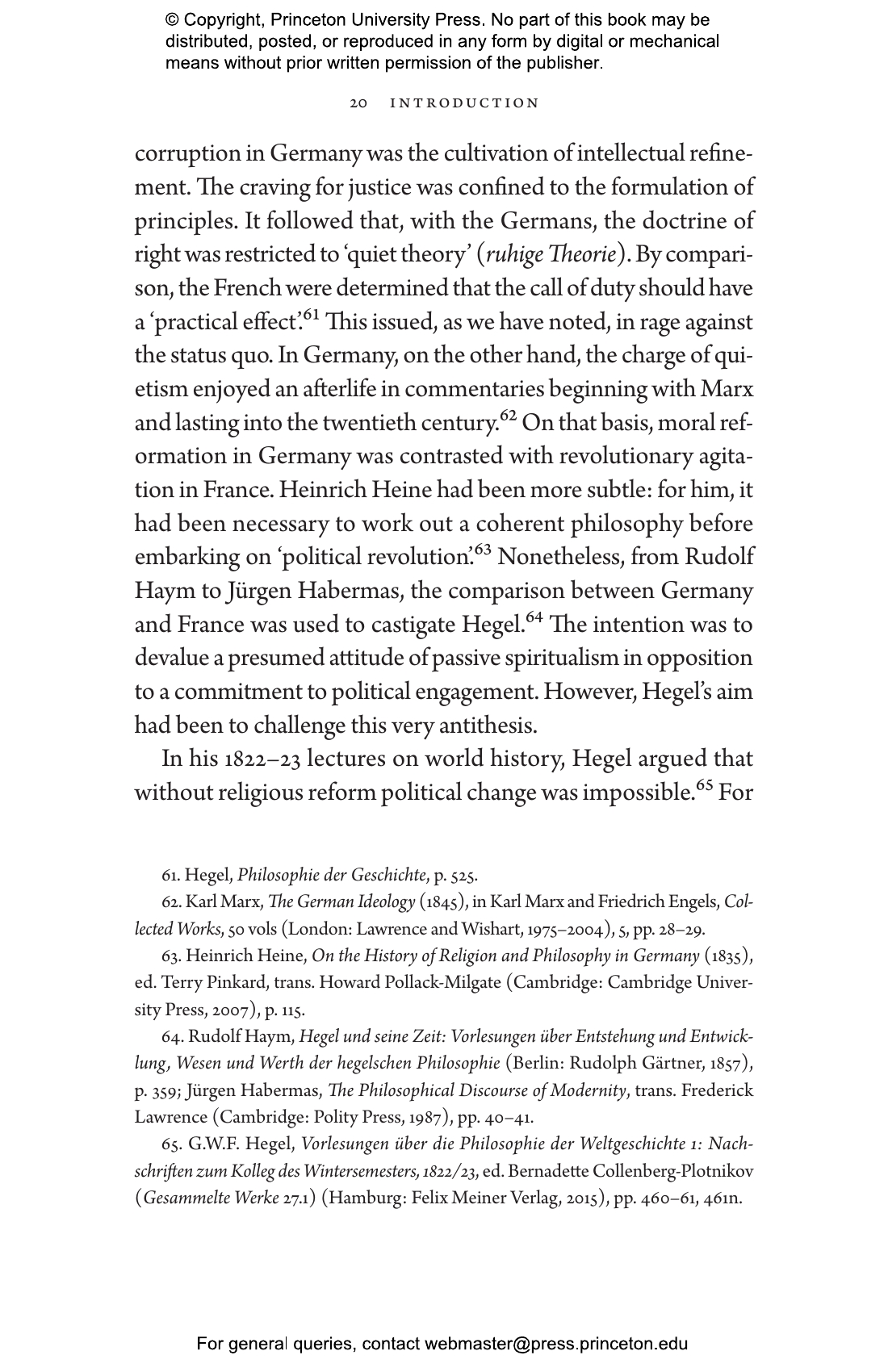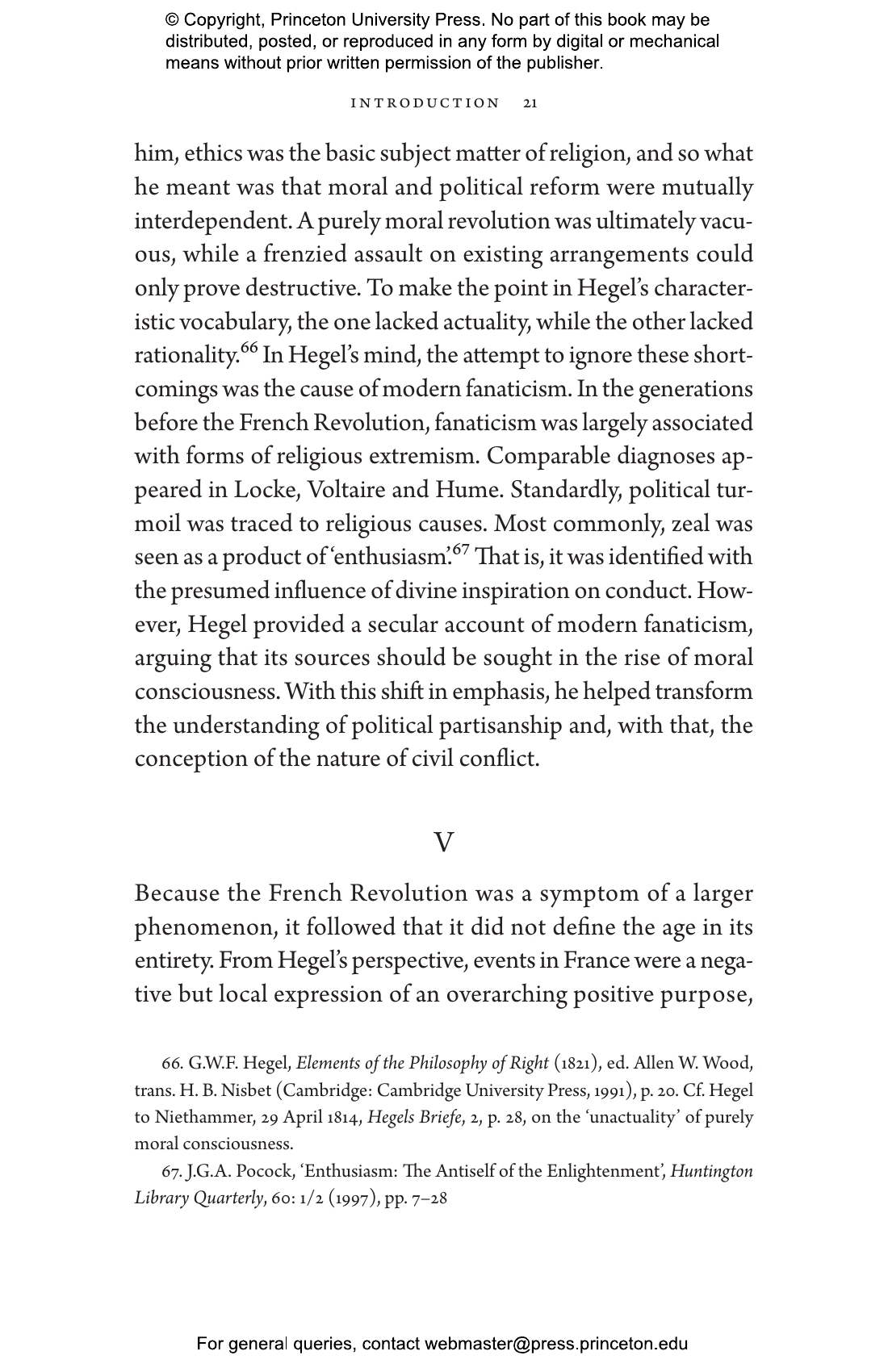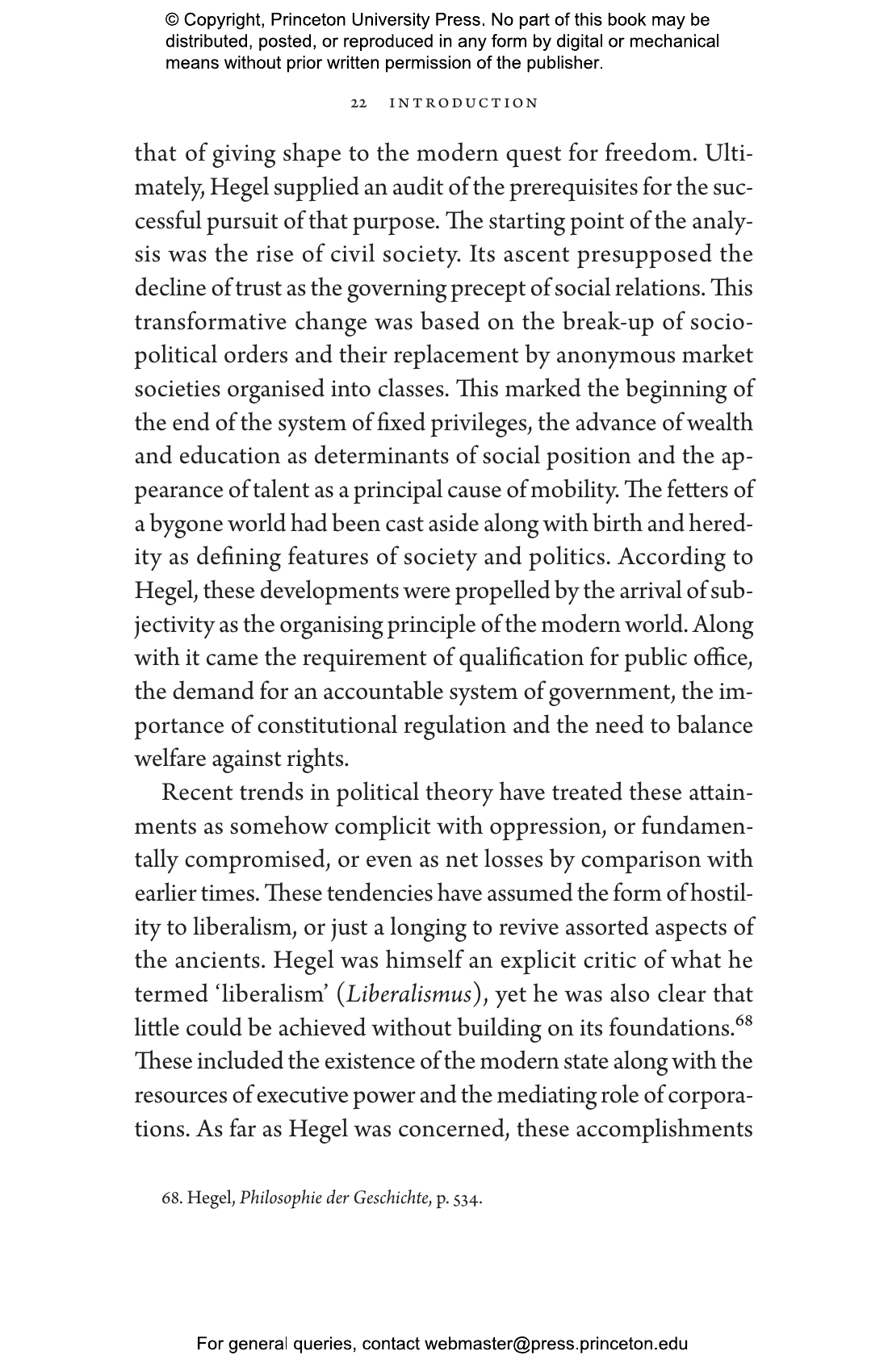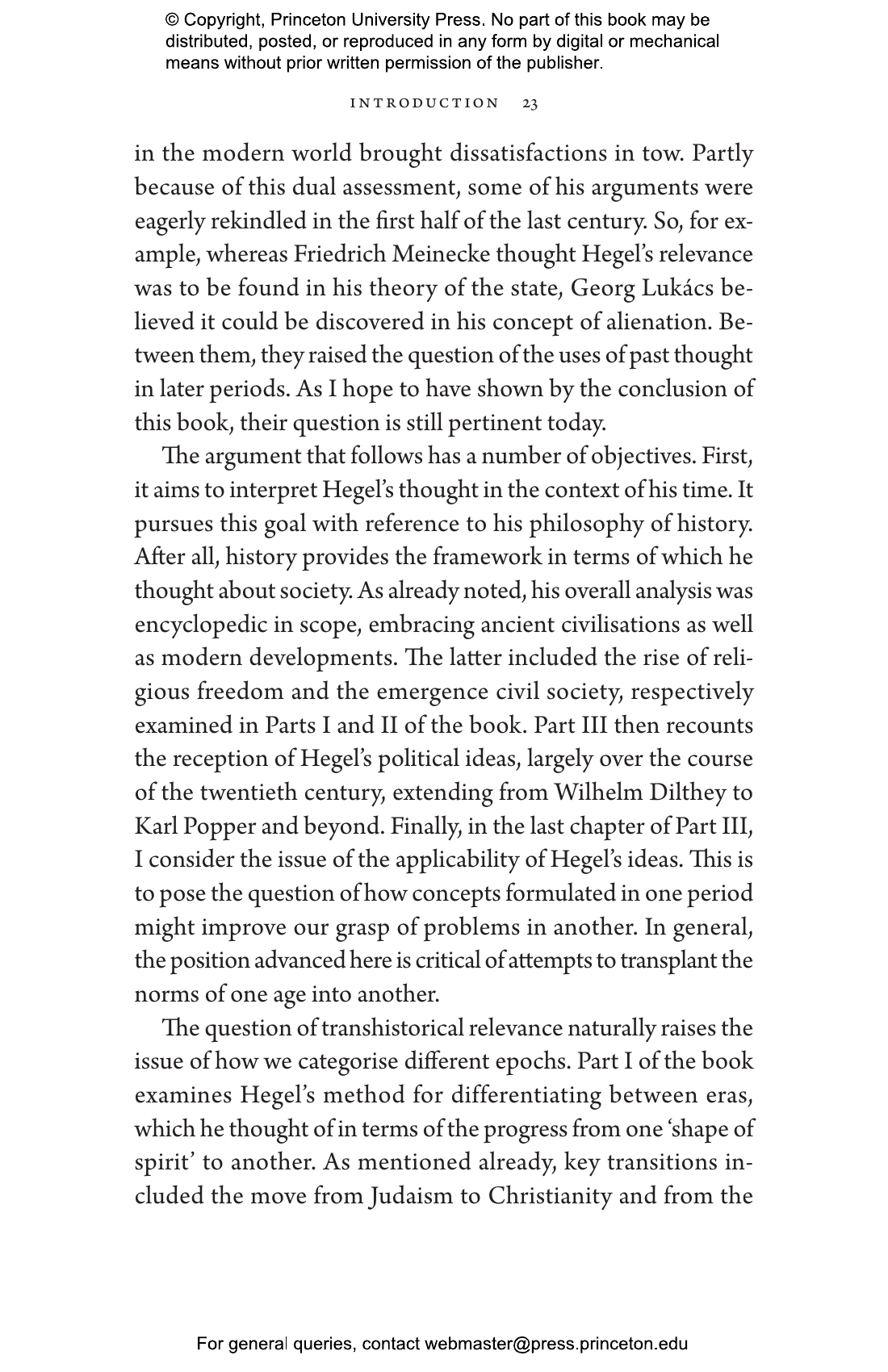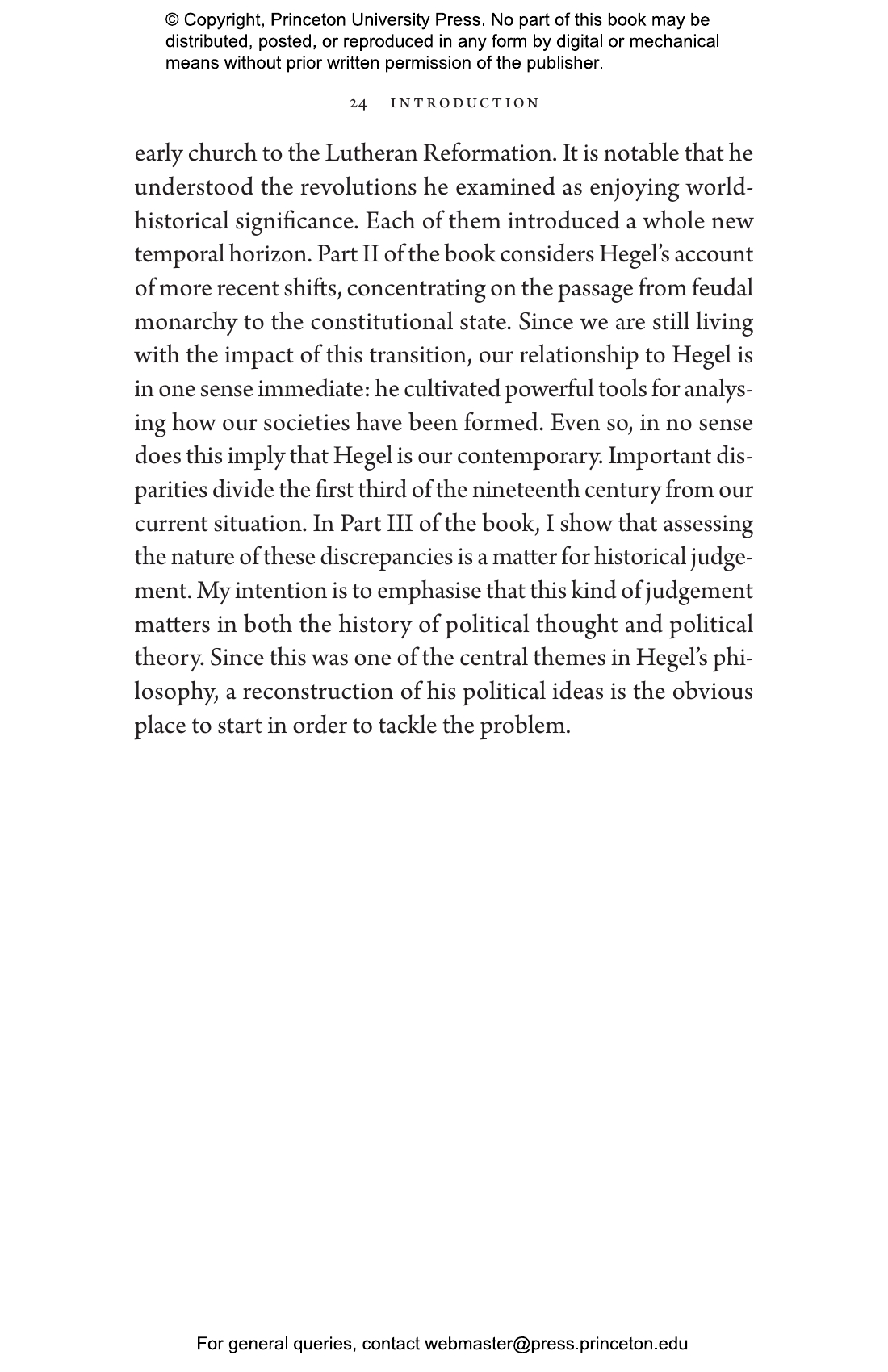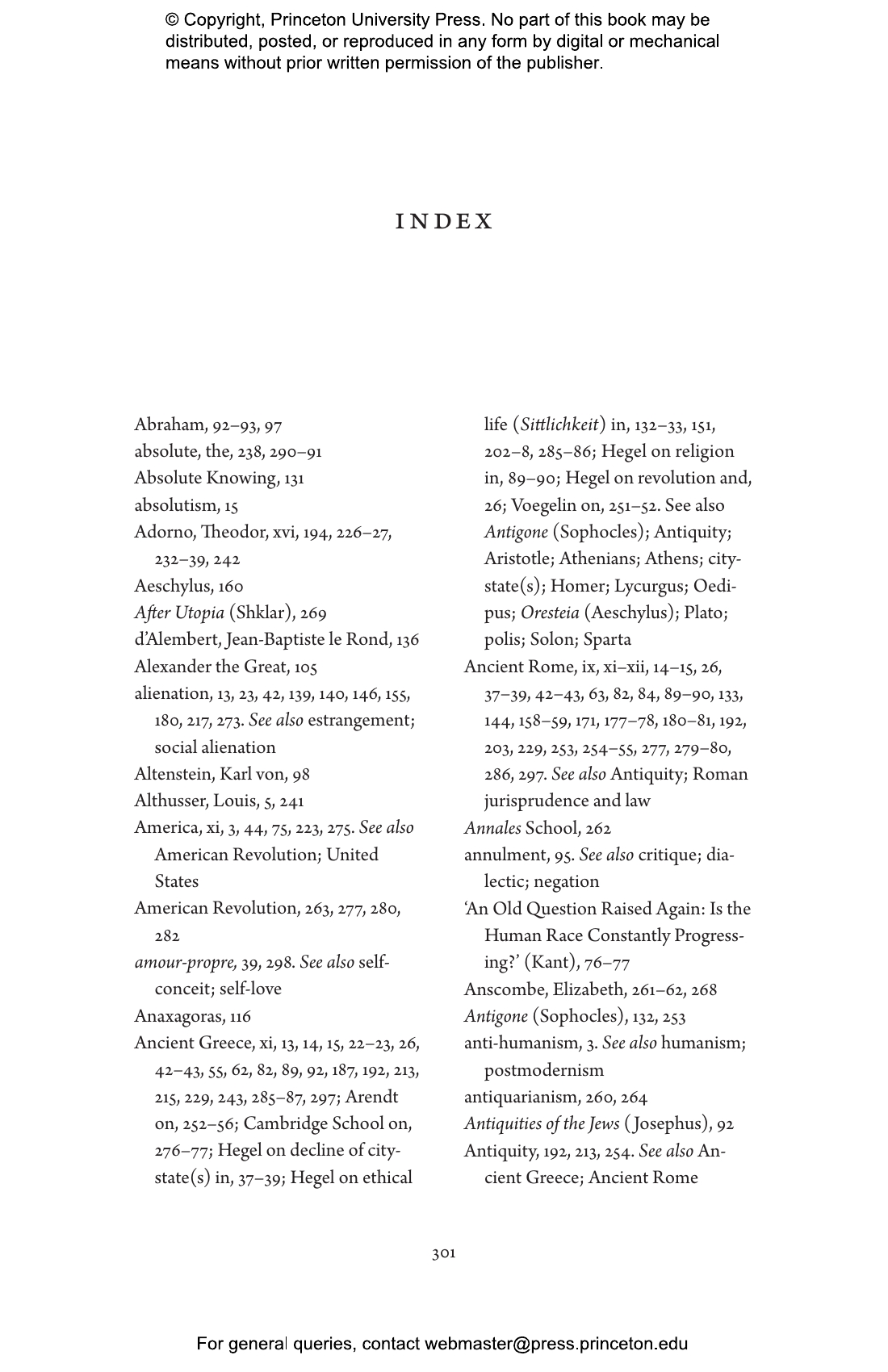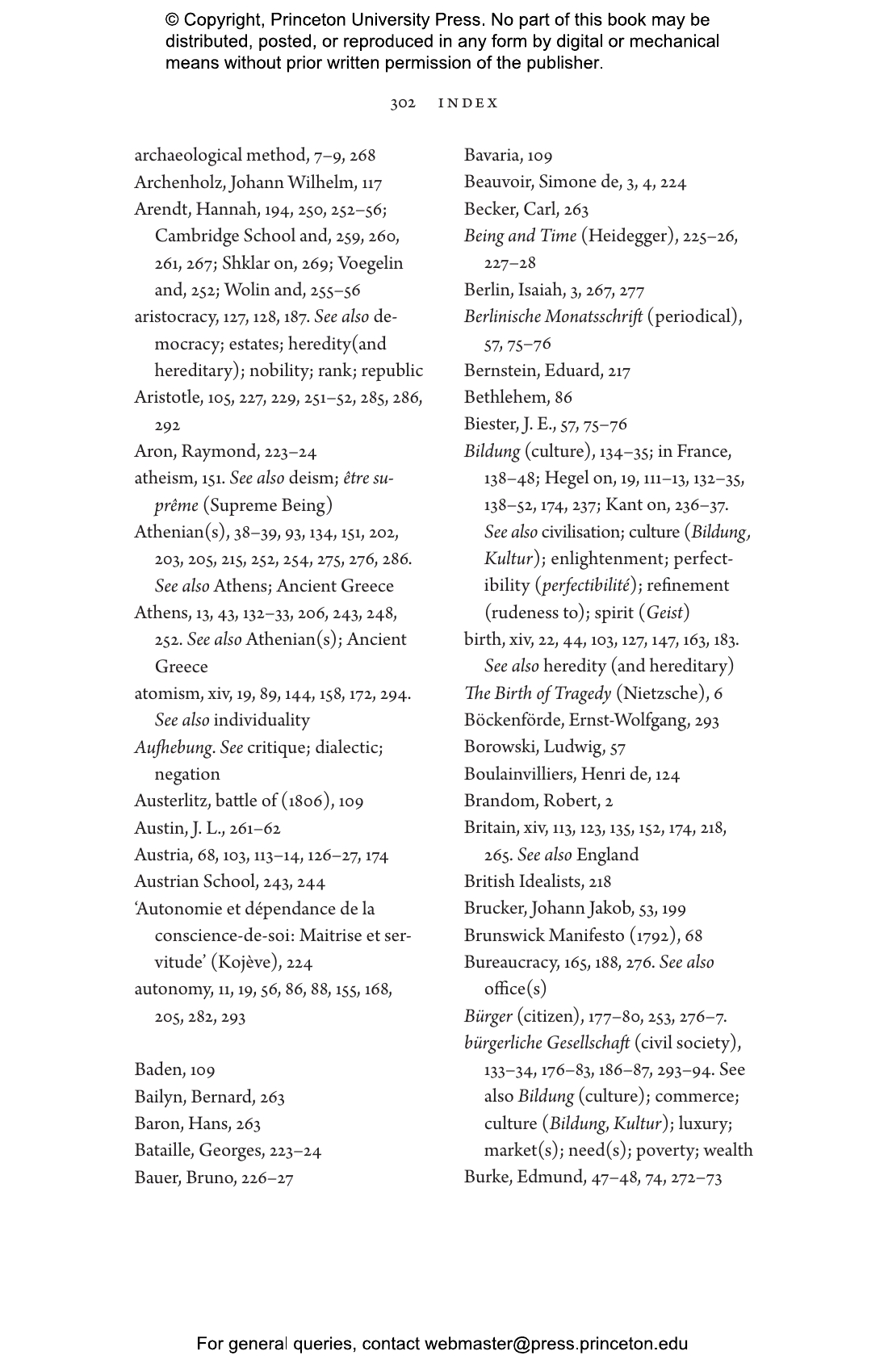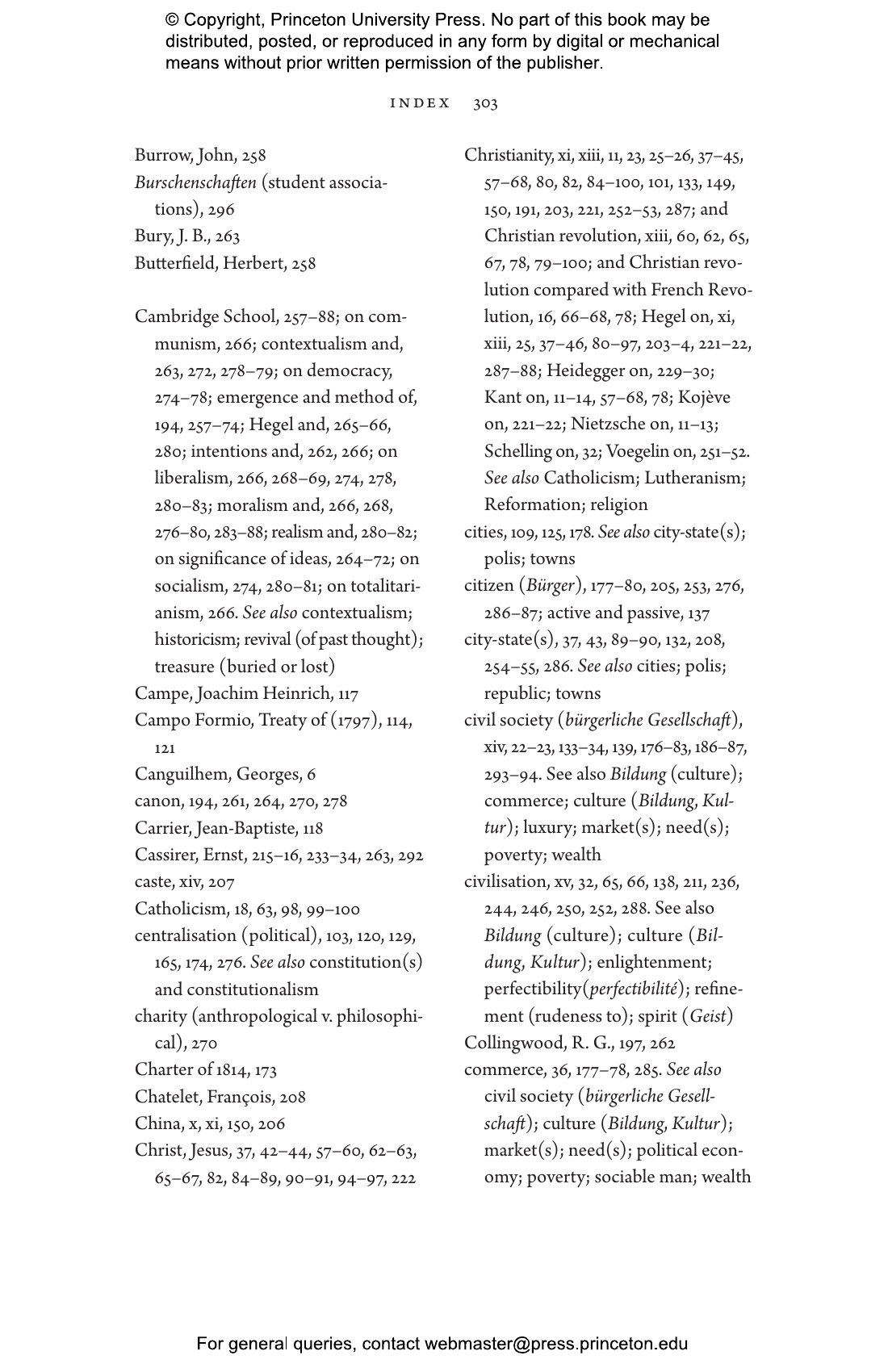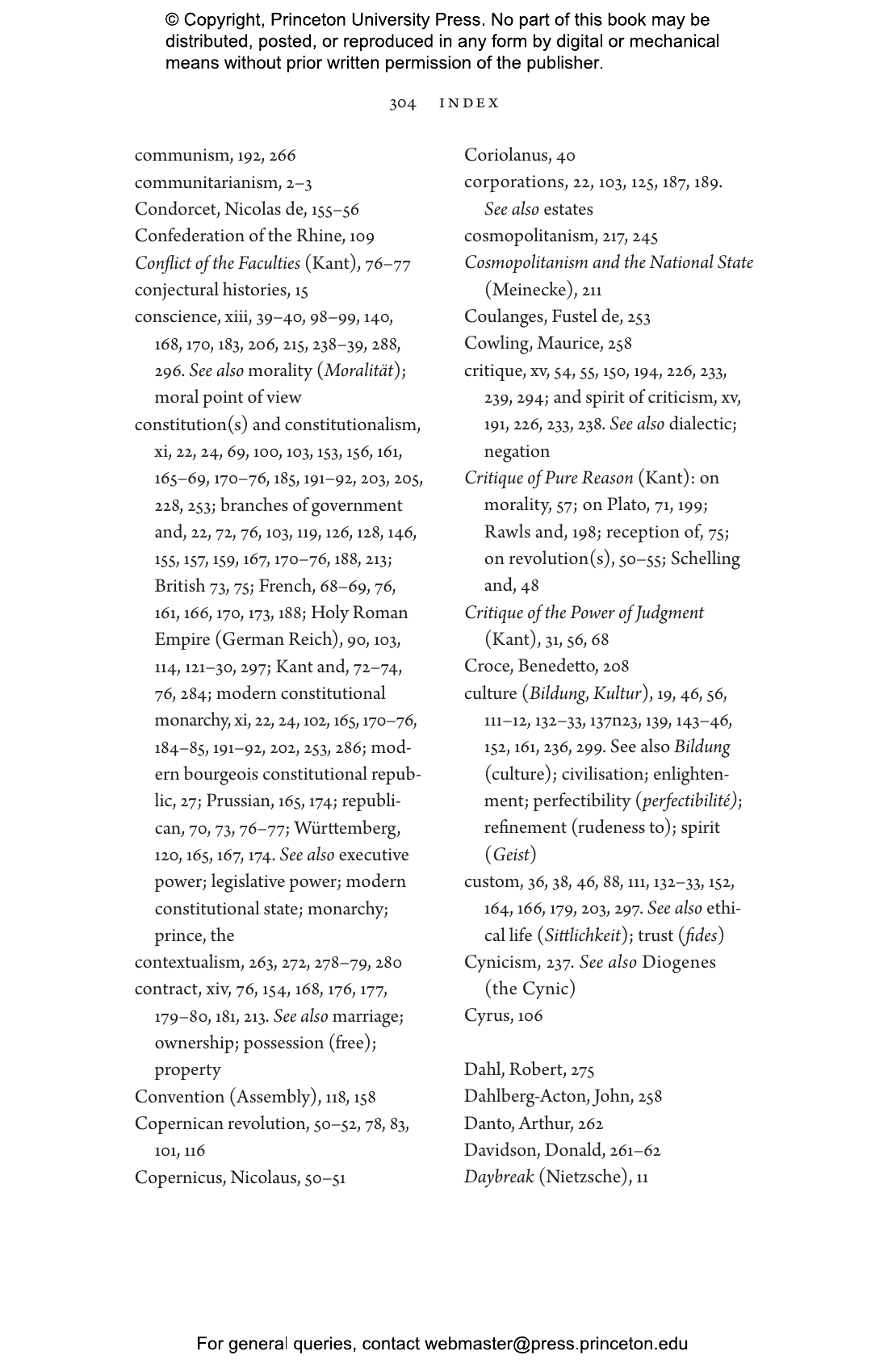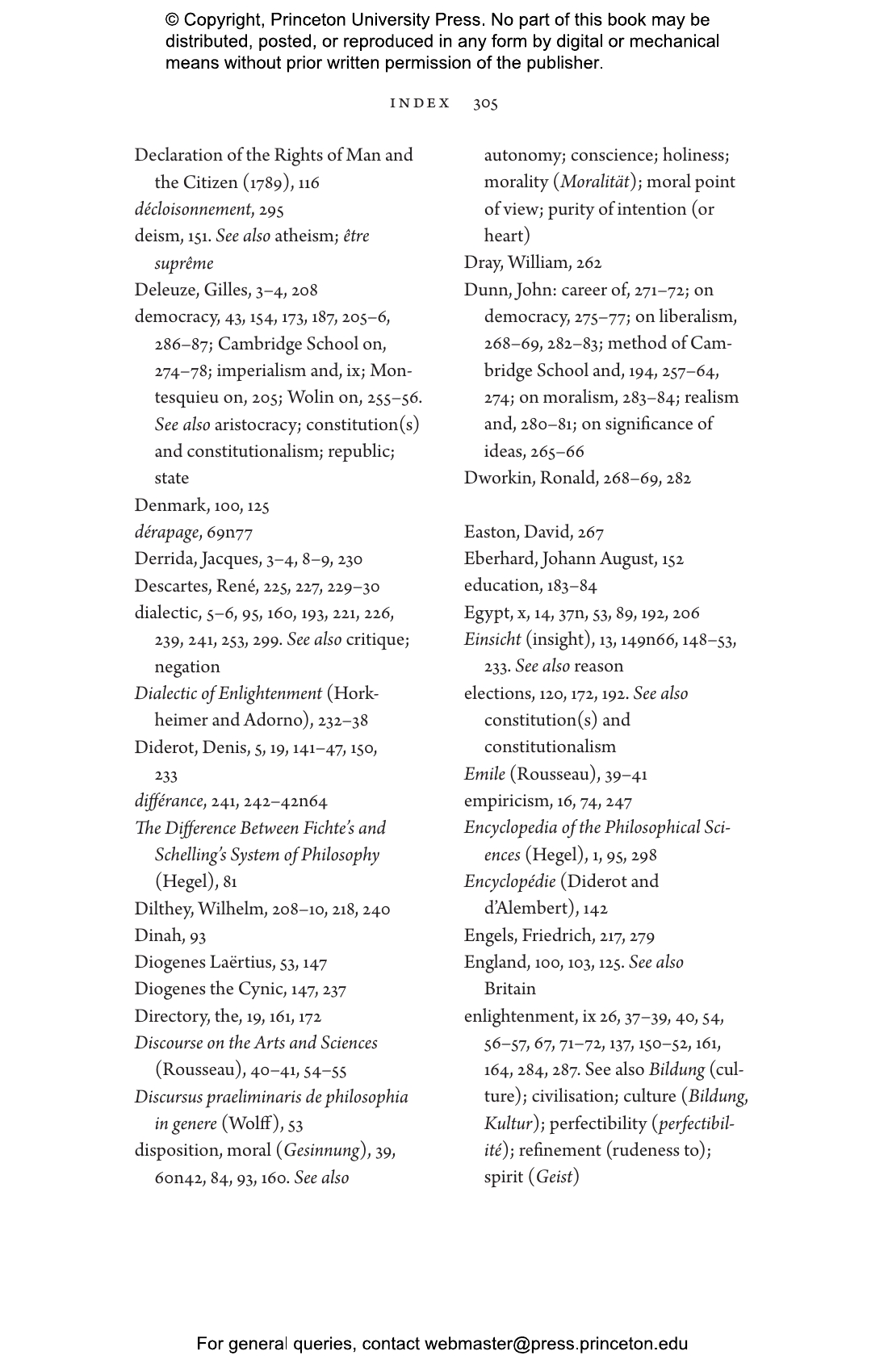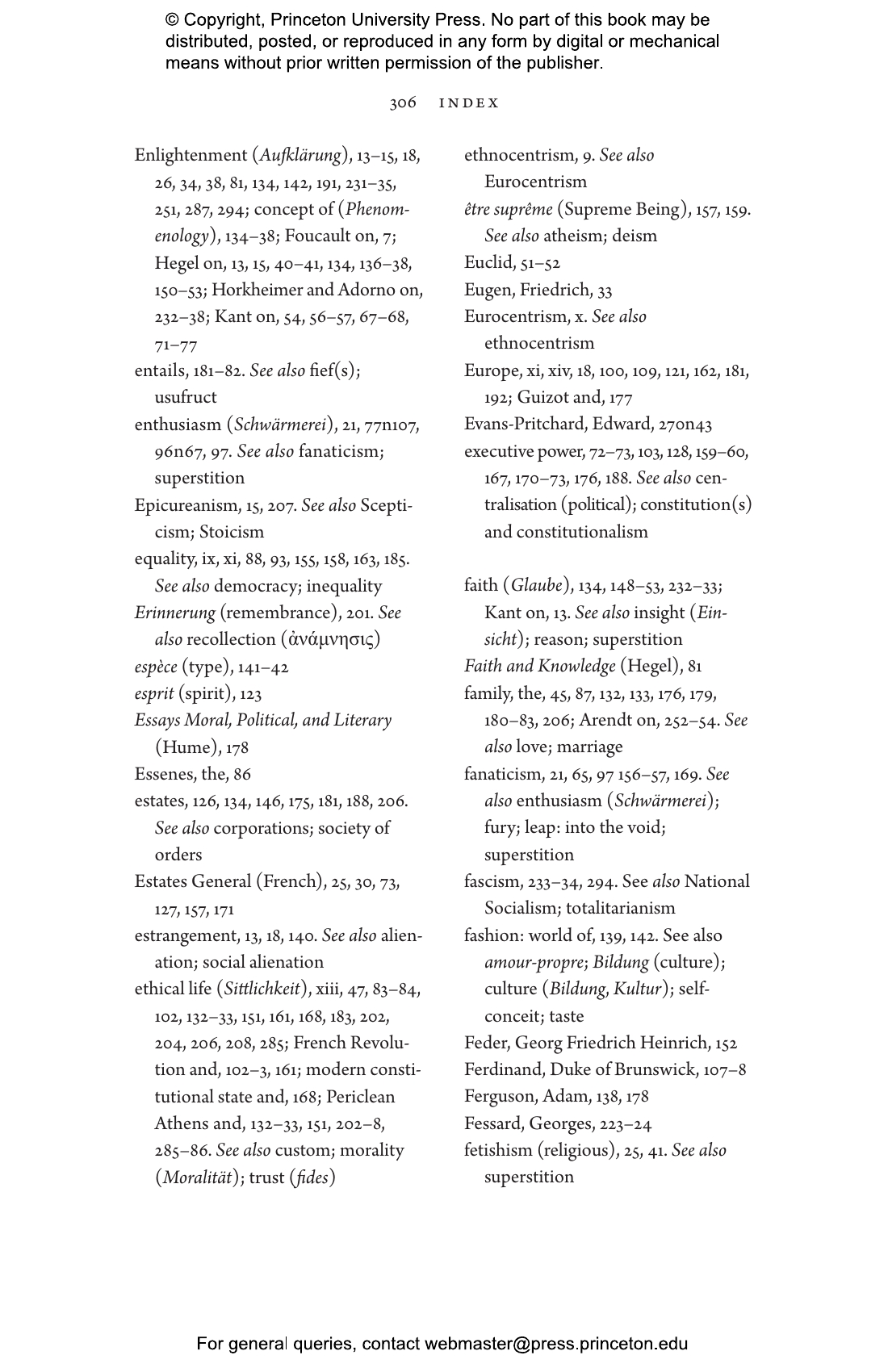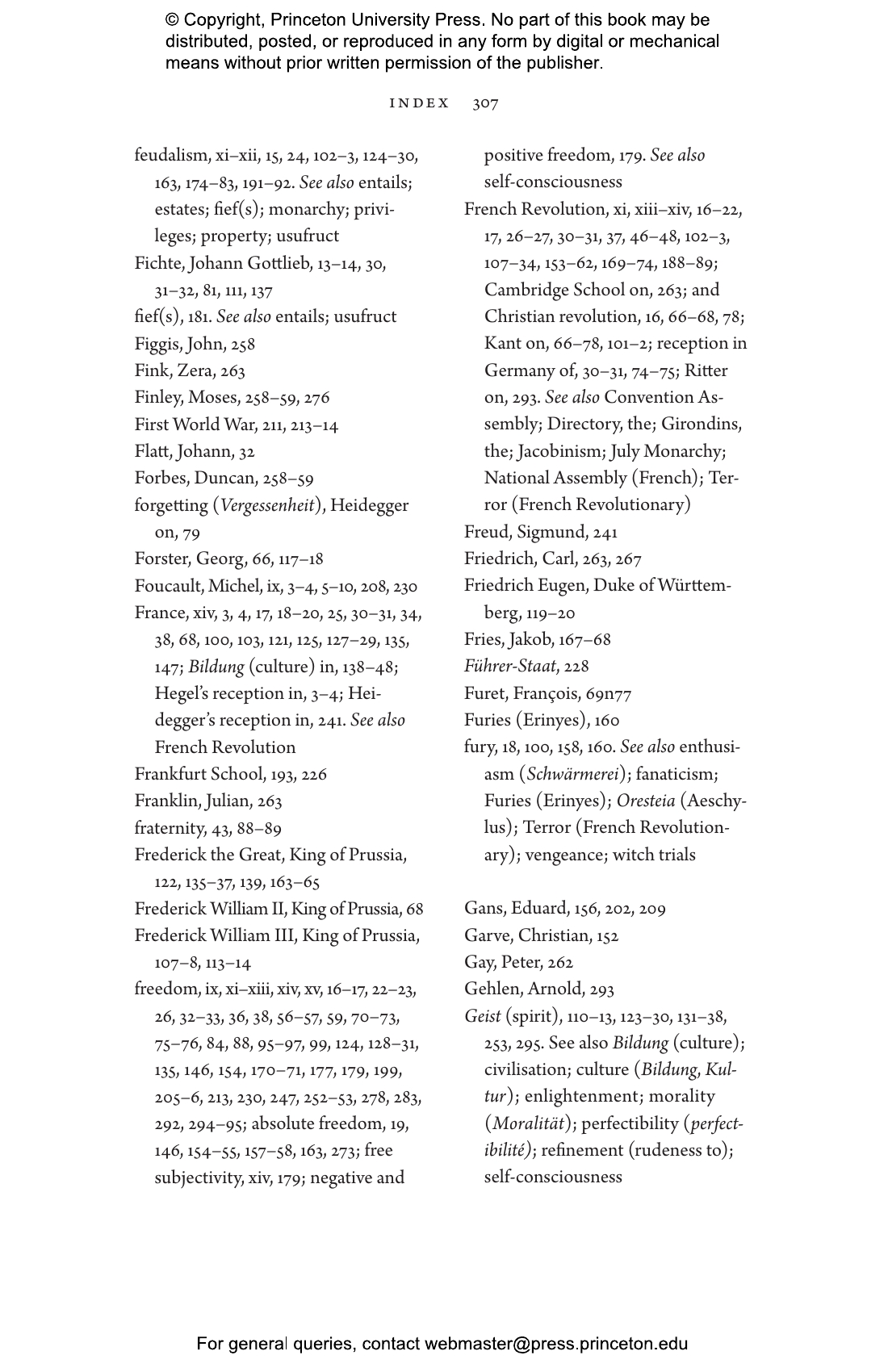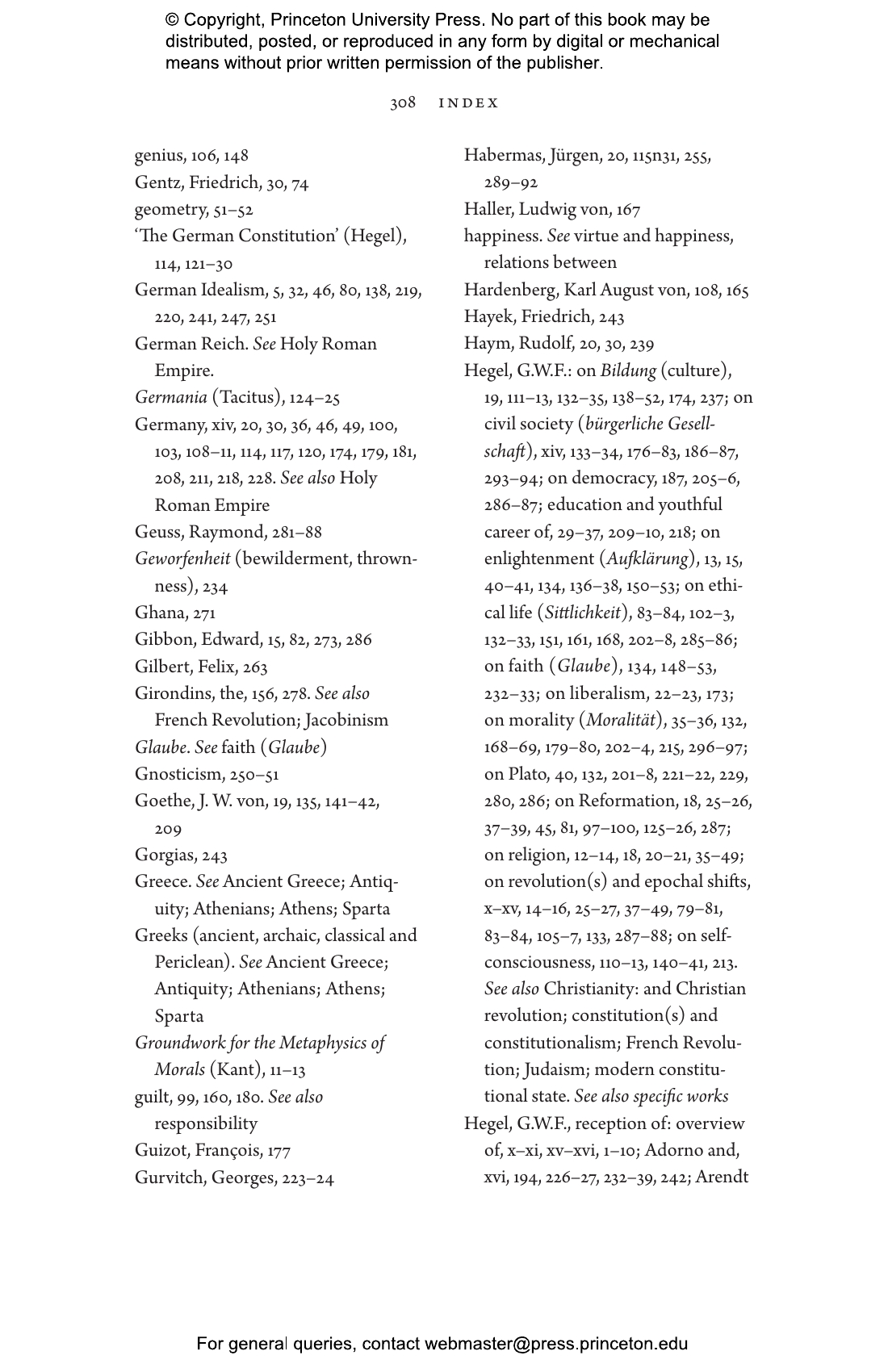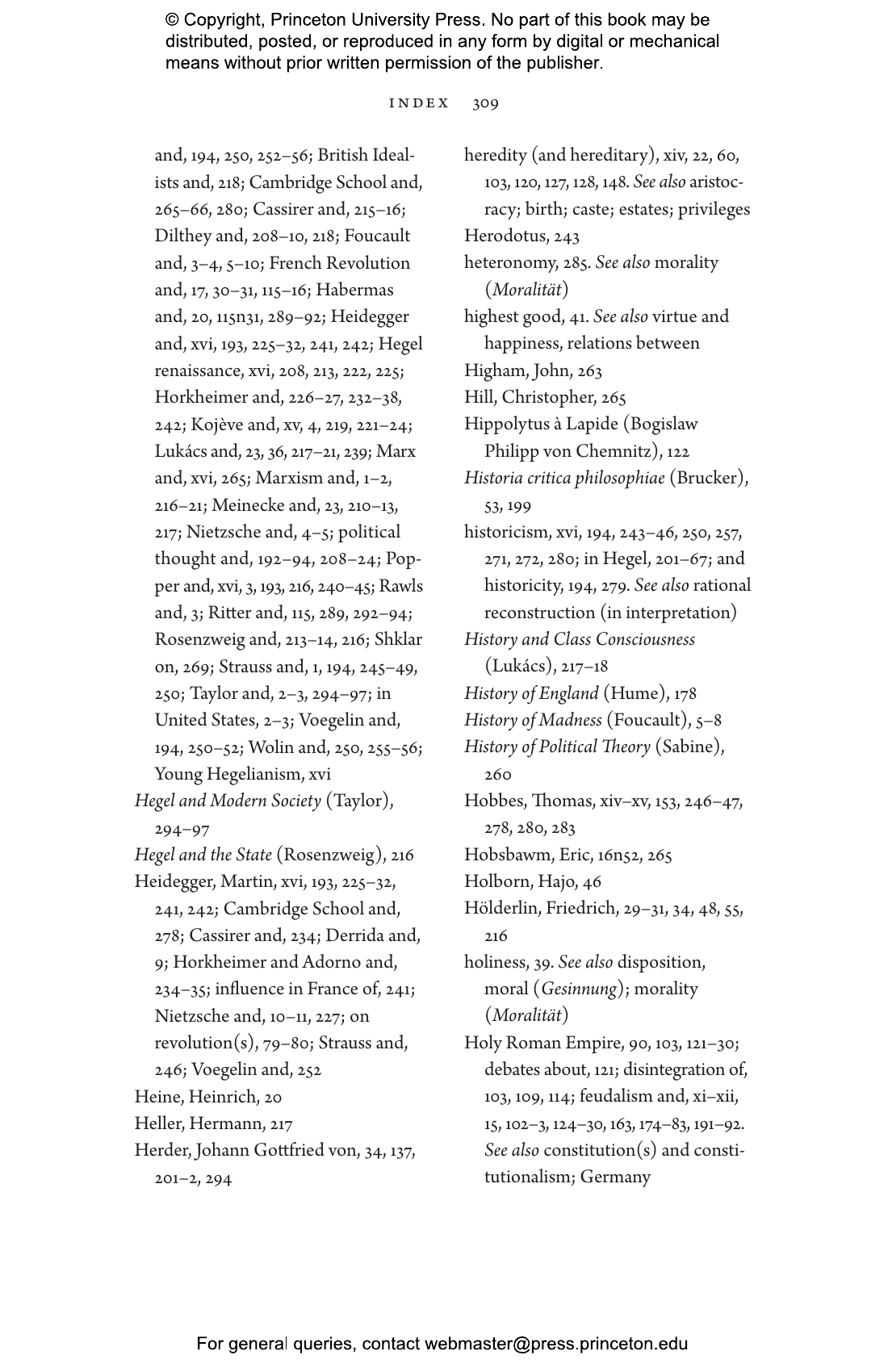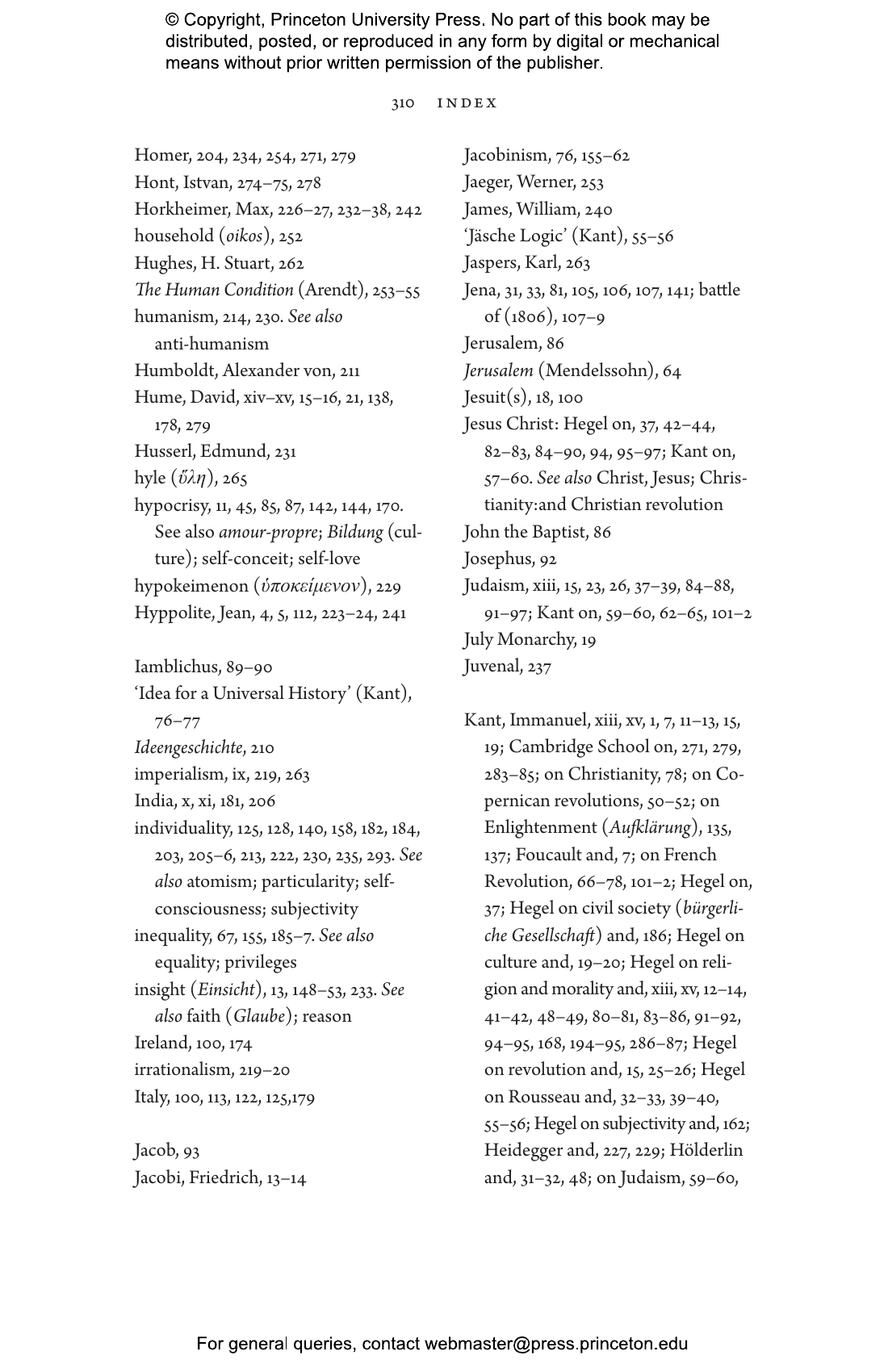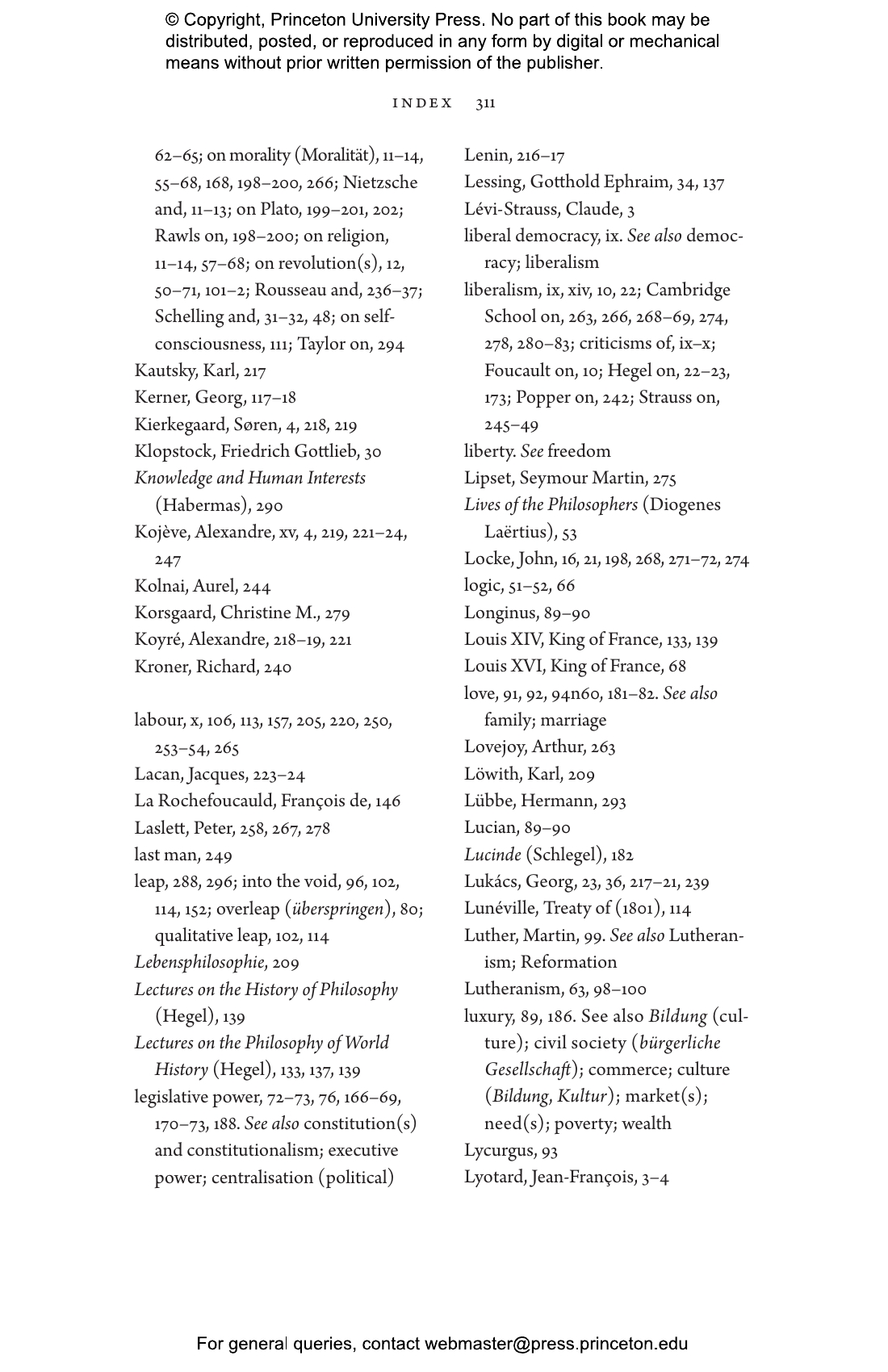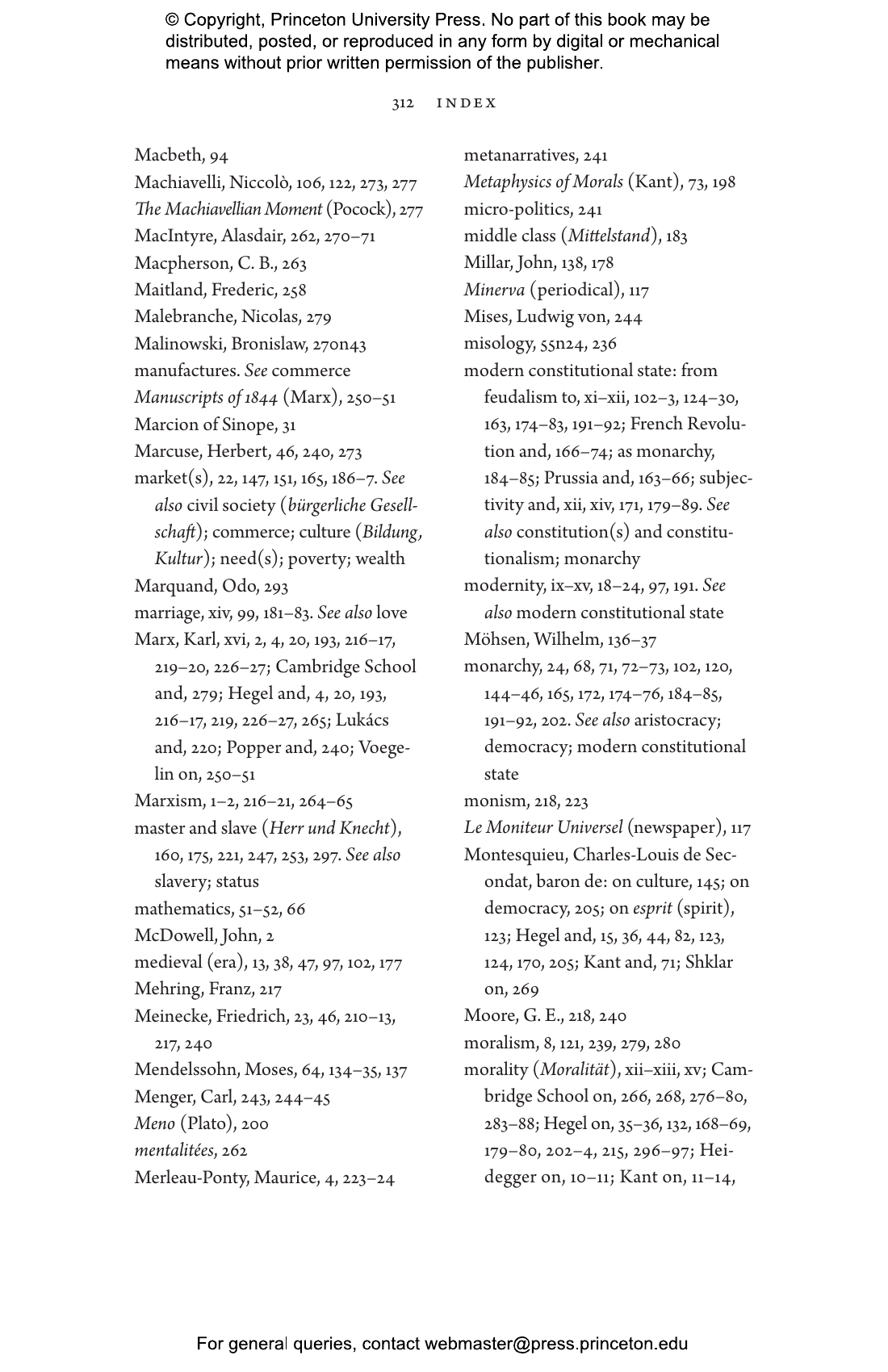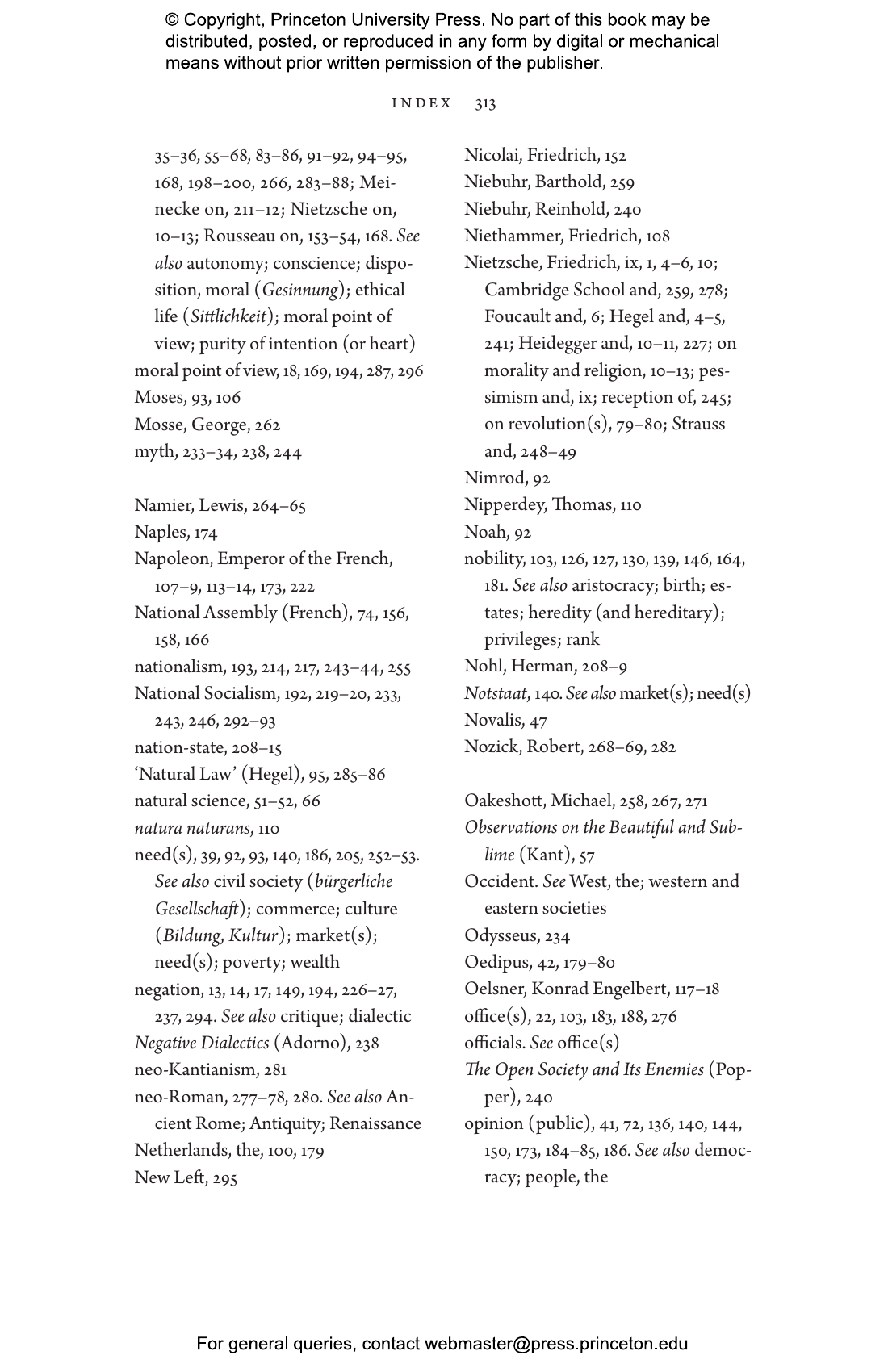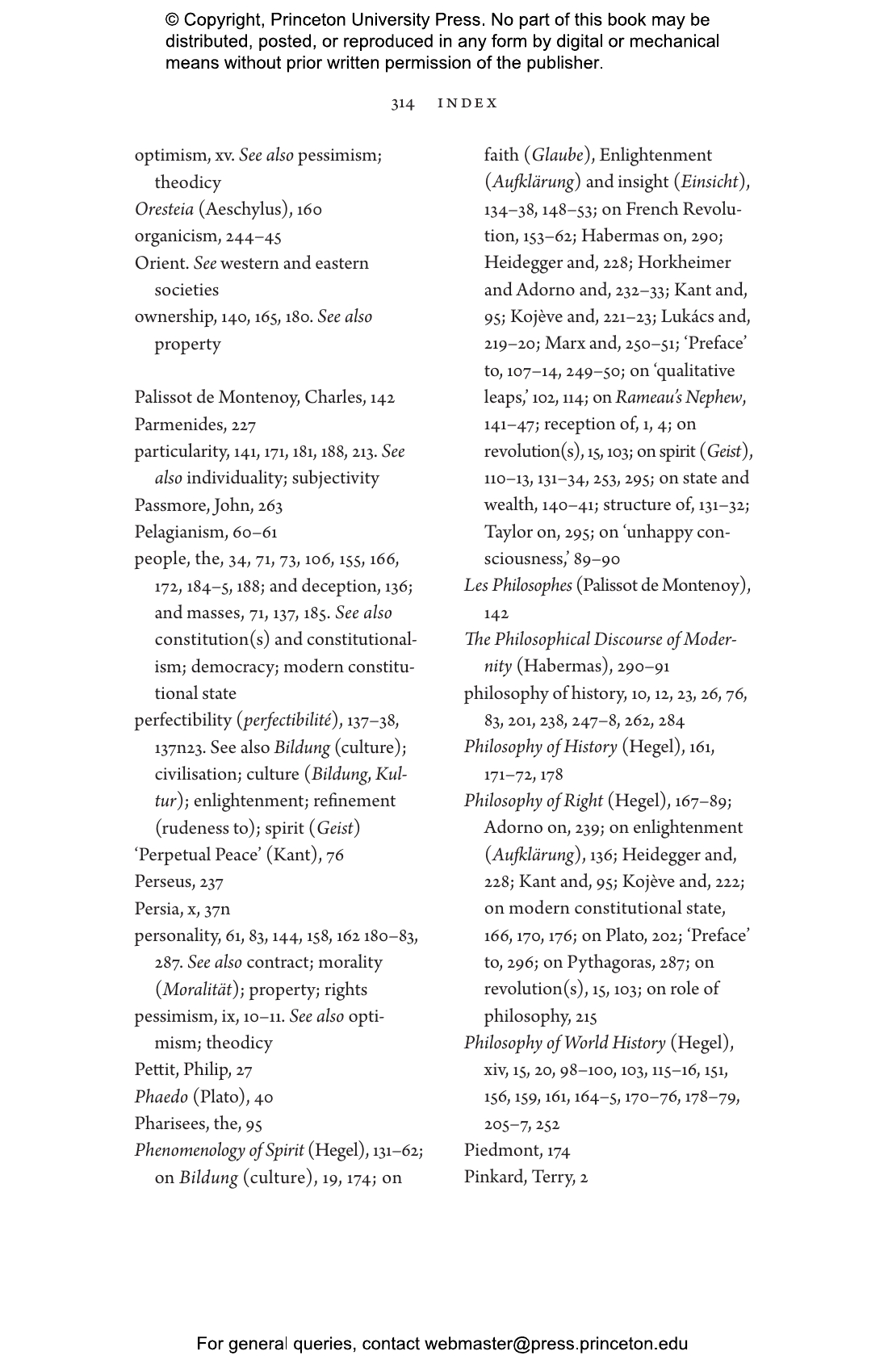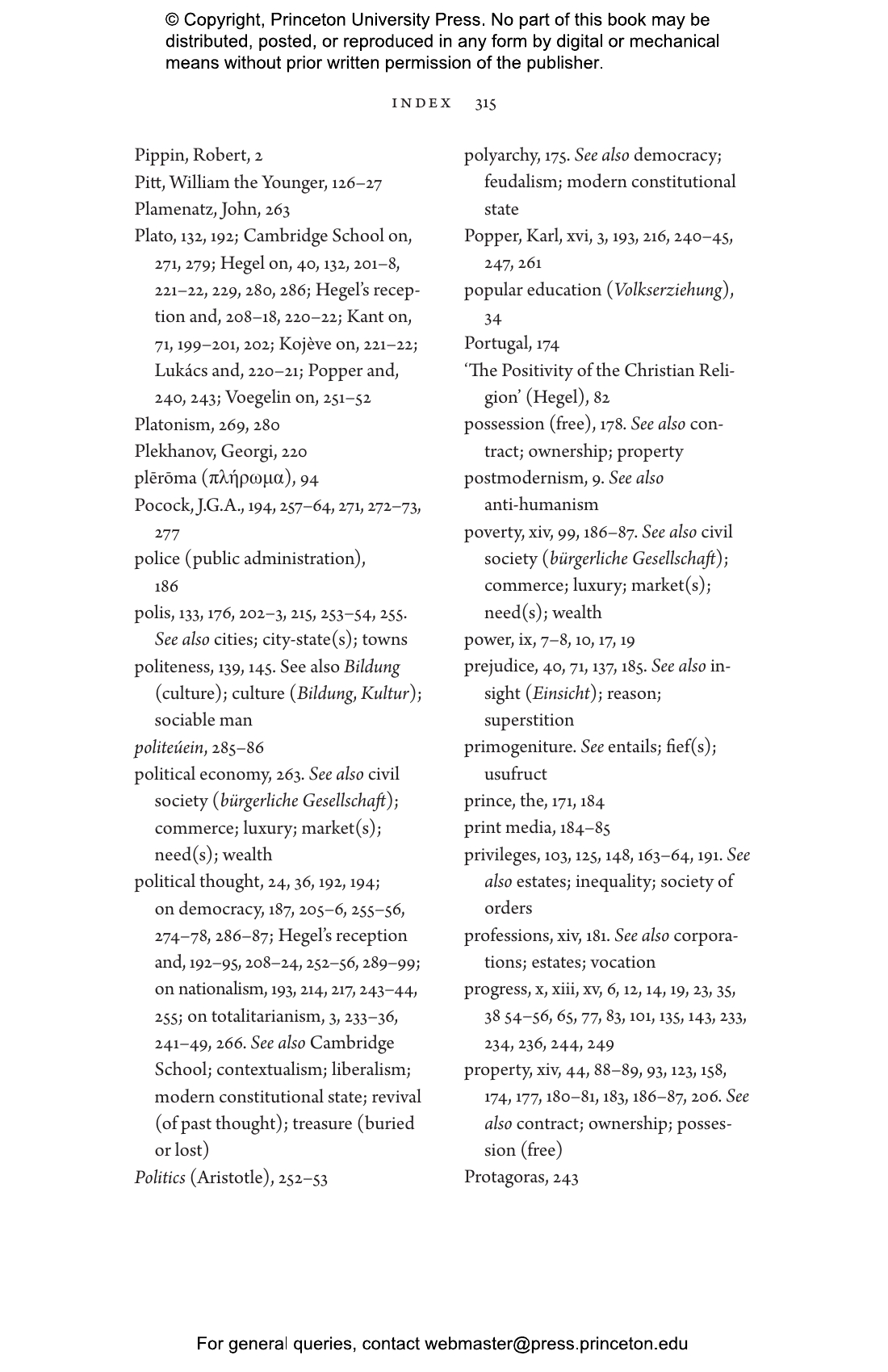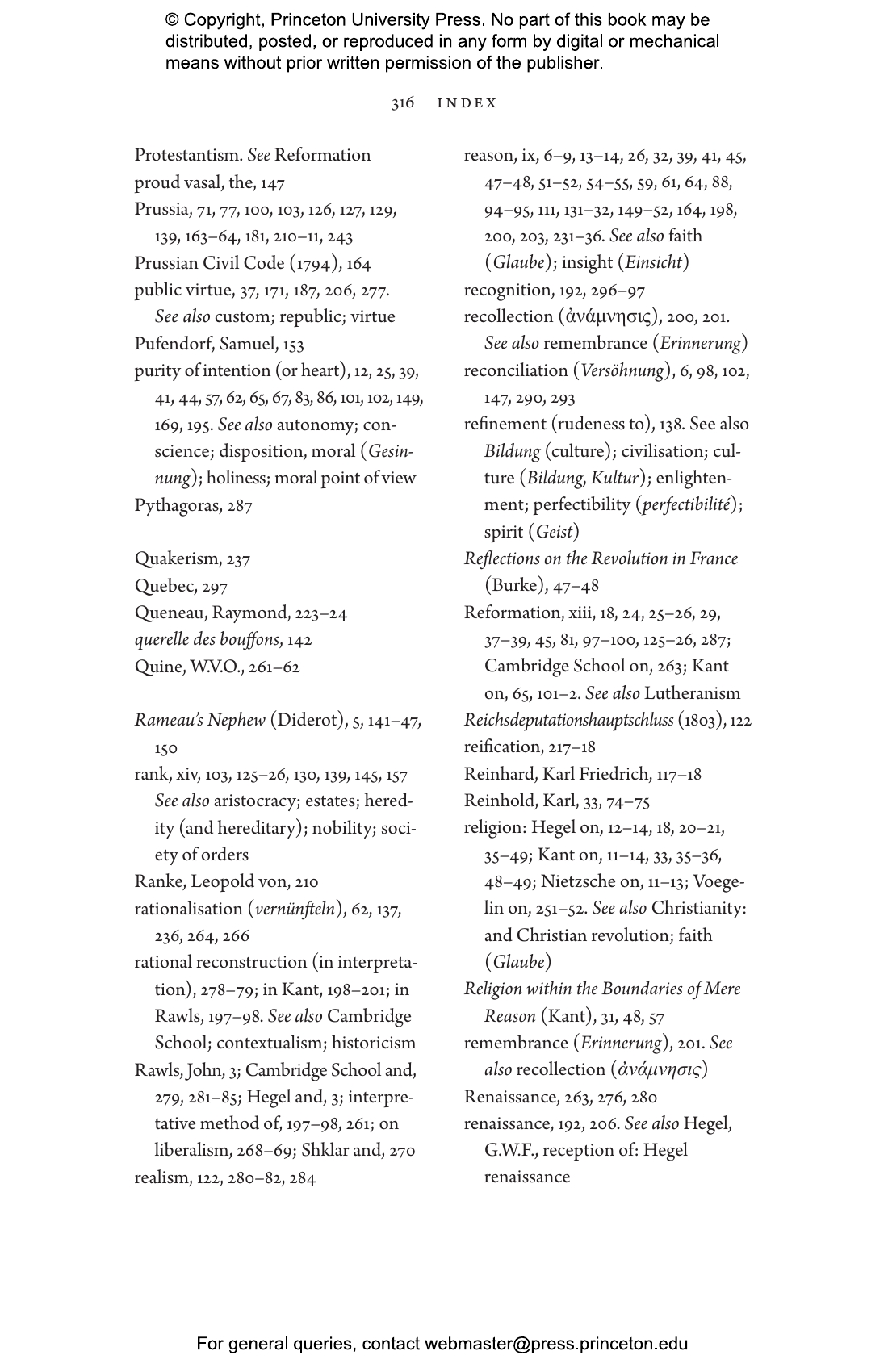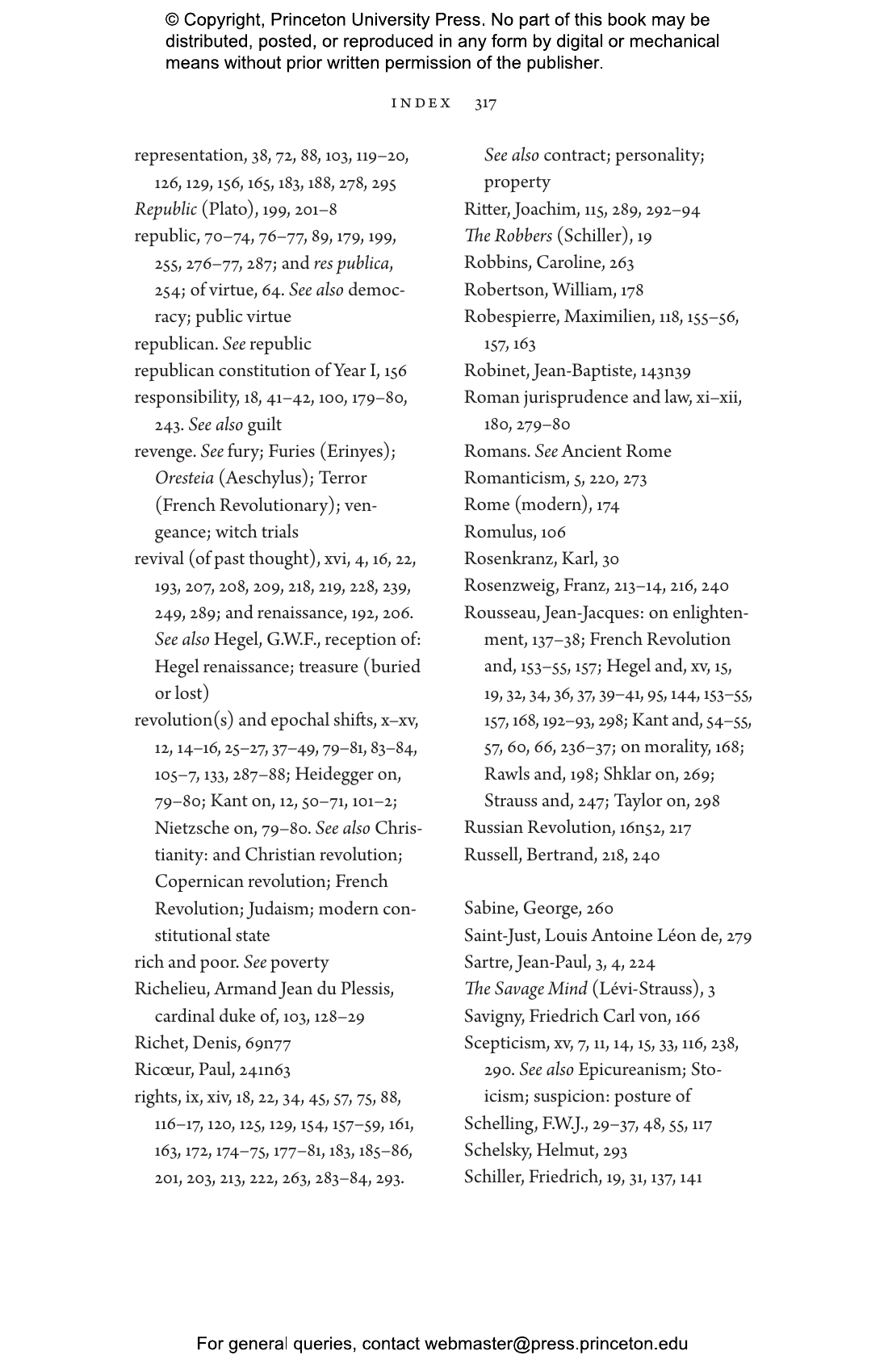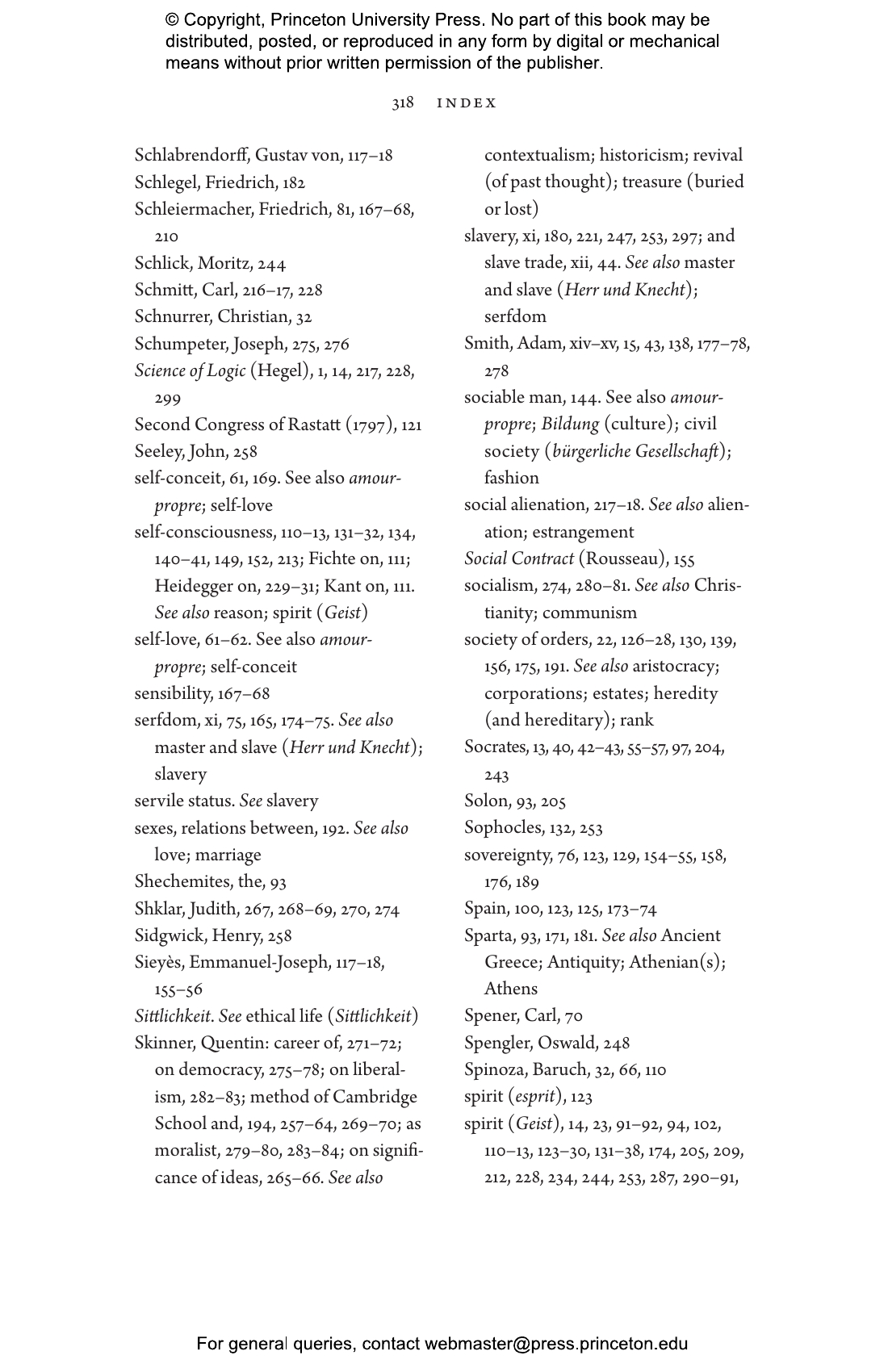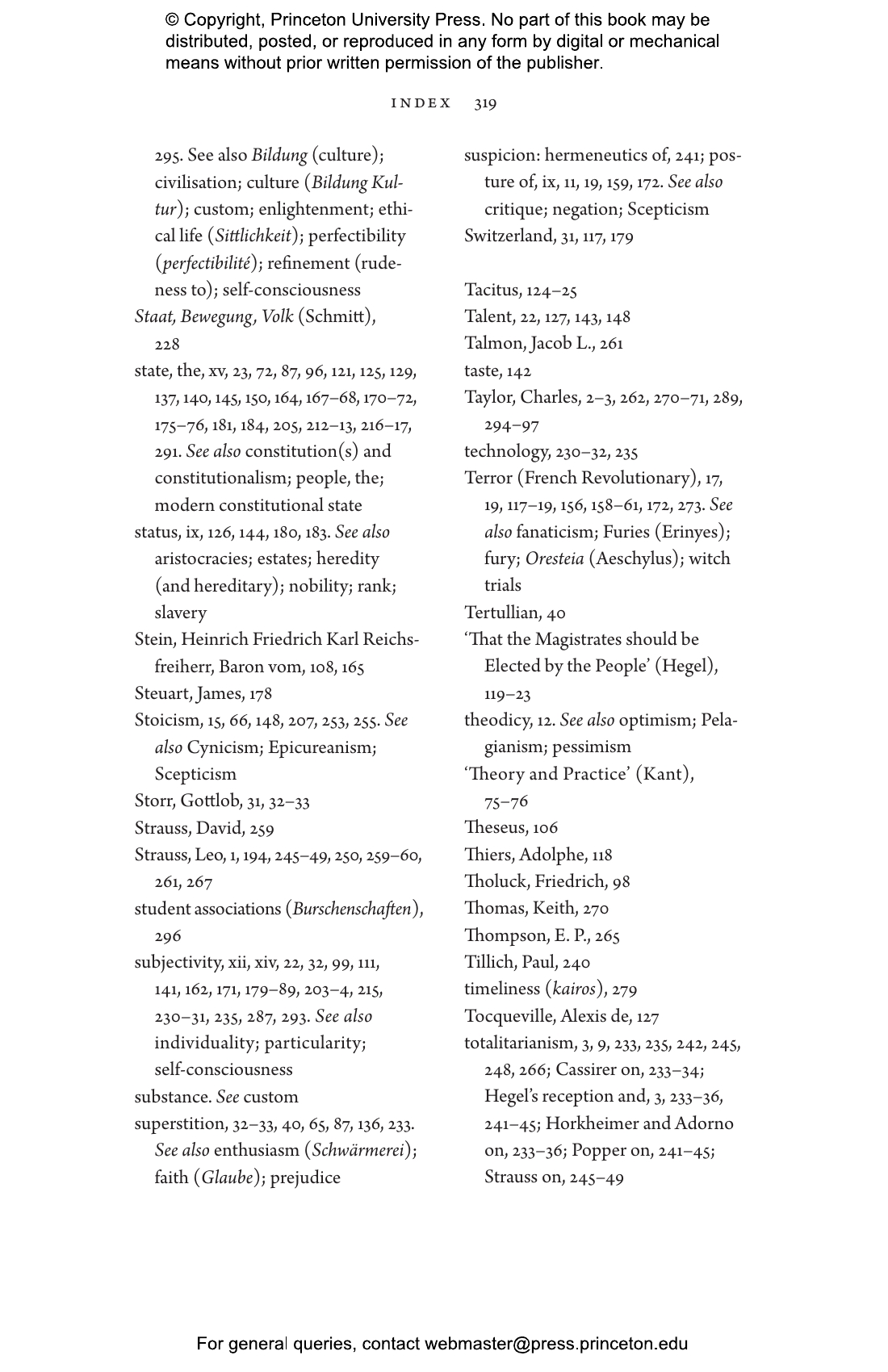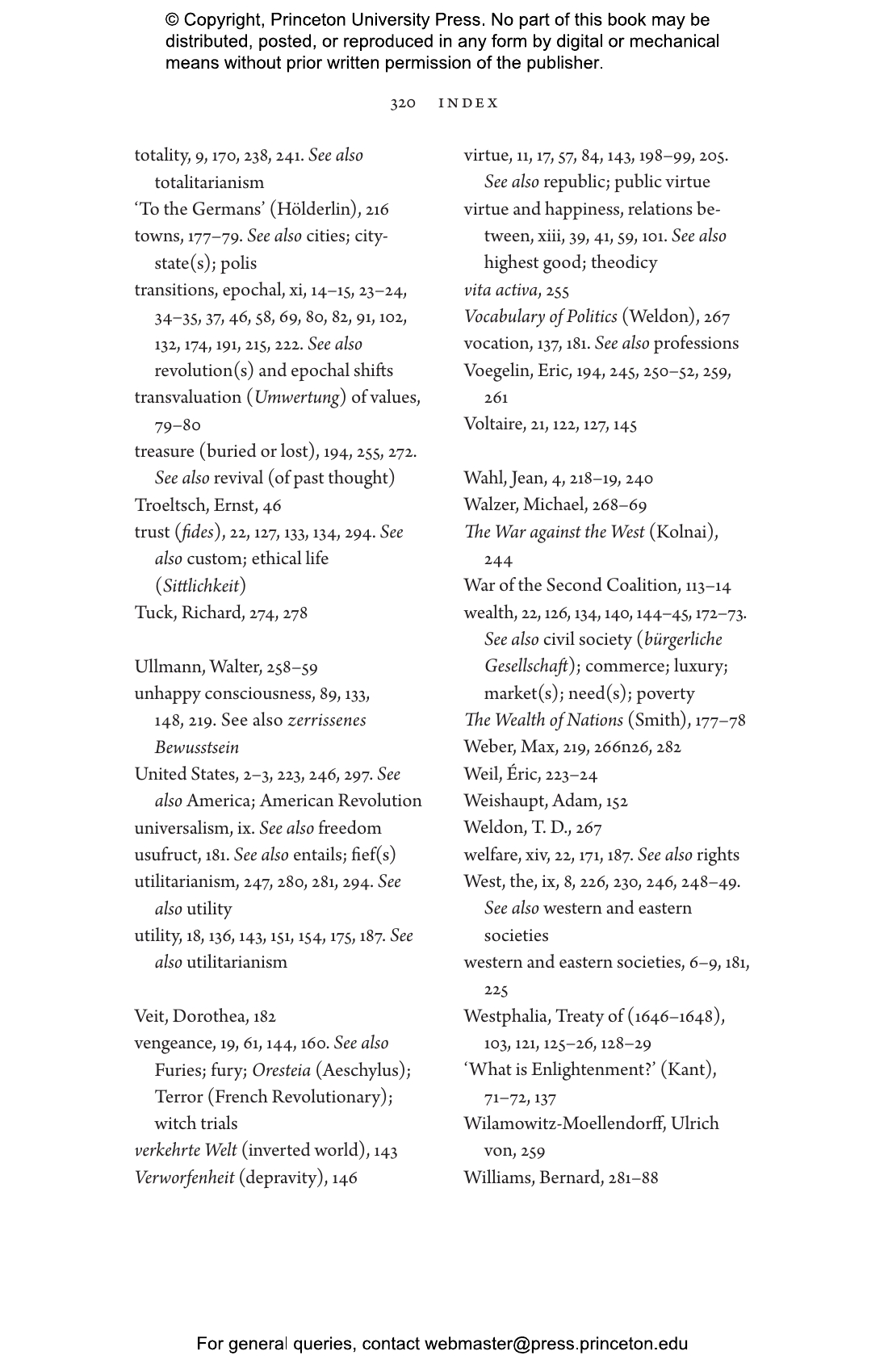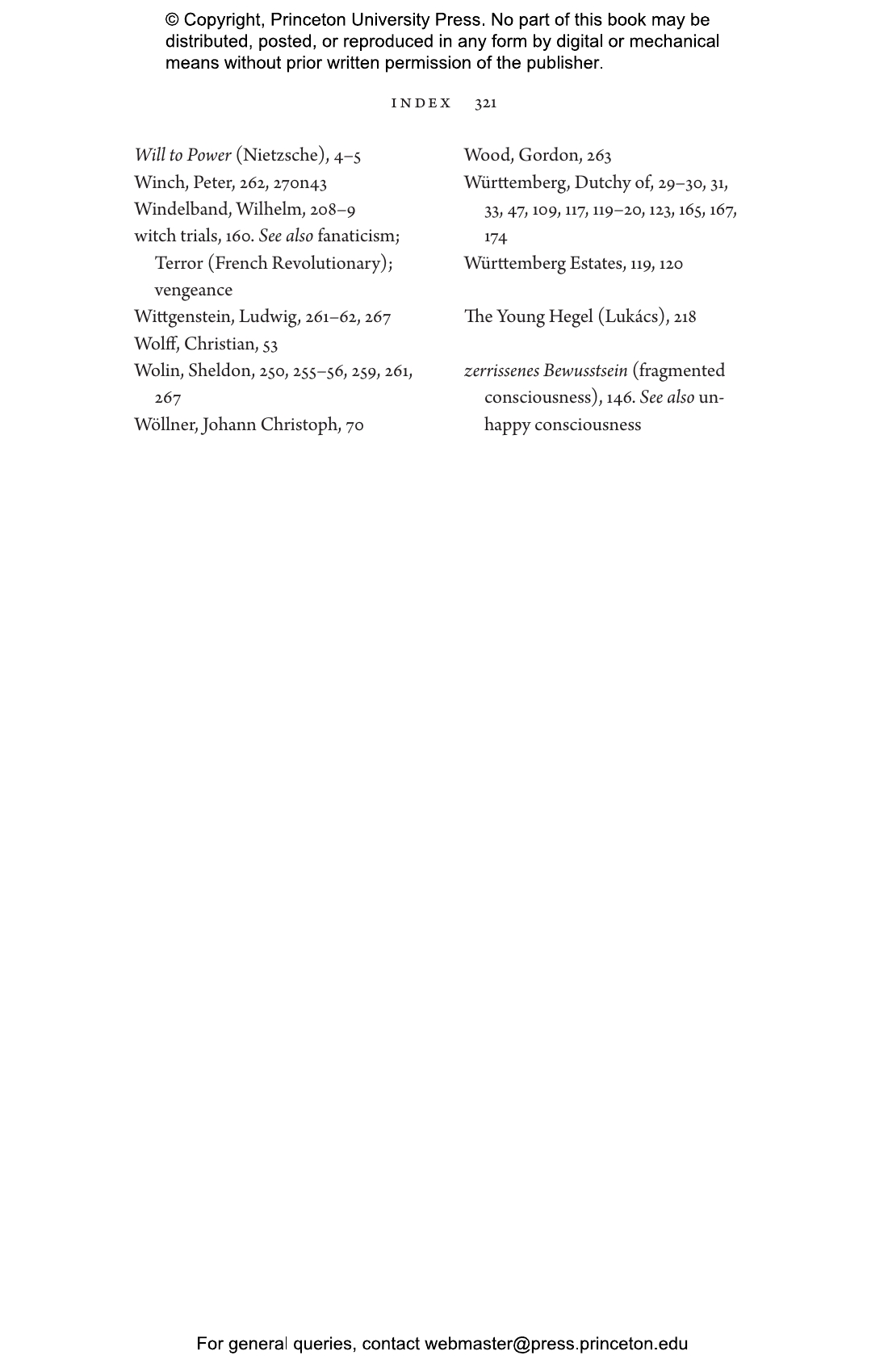G.W.F. Hegel was widely seen as the greatest philosopher of his age. Ever since, his work has shaped debates about issues as varied as religion, aesthetics and metaphysics. His most lasting contribution was his vision of history and politics. In Hegel’s World Revolutions, Richard Bourke returns to Hegel’s original arguments, clarifying their true import and illuminating their relevance to contemporary society. Bourke shows that central to Hegel’s thought was his anatomy of the modern world. On the one hand he claimed that modernity was a deliverance from subjection, but on the other he saw it as having unleashed the spirit of critical reflection. Bourke explores this predicament in terms of a series of world revolutions that Hegel believed had ushered in the rise of civil society and the emergence of the constitutional state.
Bourke interprets Hegel’s thought, with particular reference to his philosophy of history, placing it in the context of his own time. He then recounts the reception of Hegel’s political ideas, largely over the course of the twentieth century. Countering the postwar revolt against Hegel, Bourke argues that his disparagement by major philosophers has impoverished our approach to history and politics alike. Challenging the condescension of leading thinkers—from Heidegger and Popper to Lévi-Strauss and Foucault—the book revises prevailing views of the relationship between historical ideas and present circumstances.
"Few, if any, have got the gist of the Geist. Until now, that is. In Hegel’s World Revolutions, Richard Bourke offers a major re-evaluation of not only Hegel’s philosophy of history but also the history of his philosophy. . . . To understand Hegel, you must read Bourke."—Daniel Johnson, The Critic
"Richard Bourke is a formidably talented political historian. . . . Hegel’s World Revolutions displays a knowledge of its protagonist’s thought which may well be unequalled in Britain. Its mountain of secondary sources is just as impressive."—Terry Eagleton, London Review of Books
"What has enduring influence is Hegel’s historical analysis, and Mr. Bourke provides a learned case for its brilliance and relevance. . . . Mr. Bourke in particular has effectively rebuked the overheated anathemas of Hegel produced by Berlin and Popper . . . [and] their authoritarian Hegel must now confront Mr. Bourke’s cosmopolitan, pluralistic and liberal version."—Jeffrey Collins, Wall Street Journal
"[A] breathtaking intellectual tour de force. . . . A book of such unrelenting intellectual calibre and breadth."—Jeremy Jennings, Engelsberg Ideas
"A masterclass in scholarship."—Max Skjönsberg, Law & Liberty
"Hegel’s World Revolutions represents arguably the most original contribution to Hegel scholarship in some time. . . .A comprehensive yet succinct and elegant exposition of Hegel’s thought that attests to his great importance as a leading philosopher of modernity."—Adam Coleman, Oxford Political Review
"Bourke’s defence of the German philosopher against a motley crew of post-war cynics and political idealists is historically thorough and philosophically compelling, every sentence of it delivered with a clarity that will make the layman rejoice and the specialist grunt with envy"—Harrison Pitt, The European Conservative
"This study helps readers to appreciate the diagnostic function of the history of political thought and to consider its implications for our own time."—Paradigm Explorer
"[The book] serves as boundless food for thought. . . .The sort of political philosophy that one has come to naturally align with such a brilliant mind as the man himself."—David Marx Book Reviews
"[Hegel’s World Revolutions] is decorously scholarly: exhaustively researched, laden with footnotes, its argument infused with nuance throughout."—Seamus Flaherty, Merion West
"[Bourke’s] project is immense in terms of its scope. It is hard not to be impressed by the breadth of his study as he meticulously discusses the fate of Hegelian philosophy in both the continental and the Anglo-Saxon traditions."—Umur Başdaş, Contemporary Political Theory
"Subtle and persuasive… .Richard Bourke’s book, which can at first glance seem to offer a blanket pessimism about the very possibility of revolutionary change, is in fact offering a much deeper account of what achieving genuine change might look like."—Jonathan Egrid, Times Literary Supplement
'This is an ambitious and historically rich account of the motivations, reception and contemporary relevance of Hegel’s political thought. Richard Bourke’s lucid presentation brings Hegel’s ideas down to earth, clarifying them with great subtlety and accuracy. A highly impressive accomplishment.’—Sally Sedgwick, Boston University
‘Richard Bourke is at his iconoclastic and thought-provoking best in Hegel’s World Revolutions, developing a new view of Hegel’s defence of liberty and civilisation to reinterpret post-1945 political philosophy and the history of political thought as a discipline. Pithy in style, Hegel’s World Revolutions is captivating and brilliant.’—Richard Whatmore, author of The History of Political Thought: A Very Short Introduction
‘Richard Bourke’s Hegel’s World Revolutions is a distinctive and important book. It is all at once an illuminating and compelling account of Hegel’s philosophy of world history and his political philosophy, an important critique of the modern reception of Hegel, a thoughtful assessment of the bearing of Hegel’s main ideas on the present, and an erudite and valuable essay on the relation between history and political philosophy.'—Robert Pippin, University of Chicago
‘Richard Bourke’s new book is a brilliant and important work. It has the potential to transform how scholars understand Hegel and his time. It also offers a powerful challenge to the dominant ways of thinking about politics, philosophy and history in our own time.’—William Selinger, author of Parliamentarism: From Burke to Weber
‘This is a finely wrought study of the way in which Hegel managed to combine critique and historicism in his study of political ideas and modern political institutions.’—Bernard Yack, Brandeis University
‘This important, clear account critically examines problems of historical transition in Hegel’s thought, particularly the emergence of the modern world in relation to antiquity and feudalism.’—Douglas Moggach, University of Ottawa/University of Sydney


